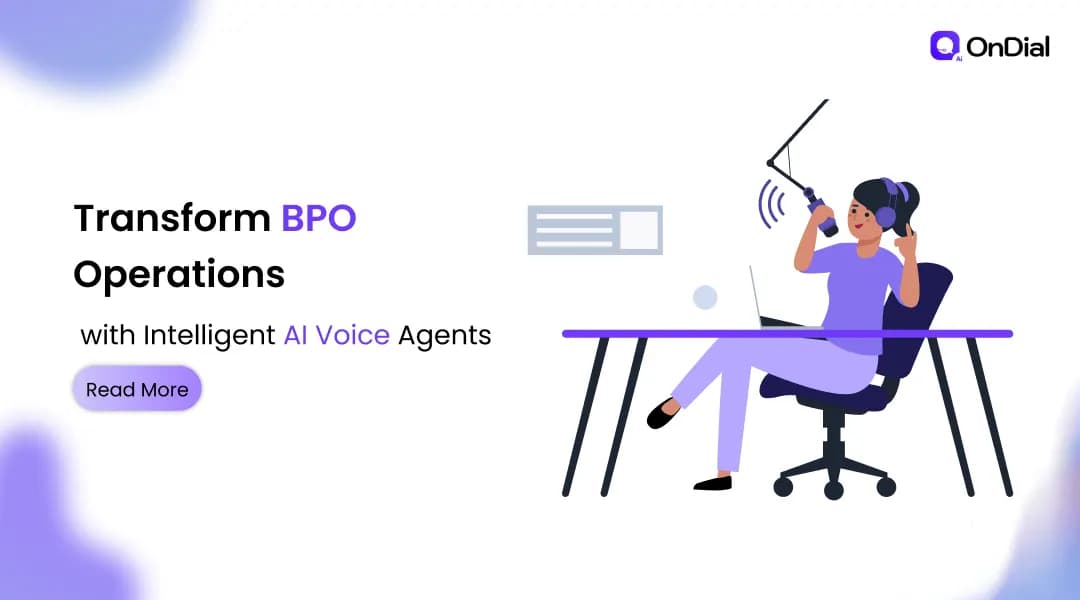
Transform BPO Operations with Intelligent AI Voice Agents
Upgrade BPO efficiency with intelligent AI voice agents. Cut costs, improve CX, and scale 24/7 customer support with advanced voice automation.

Divyang Mandani is the CEO of OnDial, driving innovative AI and IT solutions with a focus on transformative technology, ethical AI, and impactful digital strategies for businesses worldwide.

Upgrade BPO efficiency with intelligent AI voice agents. Cut costs, improve CX, and scale 24/7 customer support with advanced voice automation.
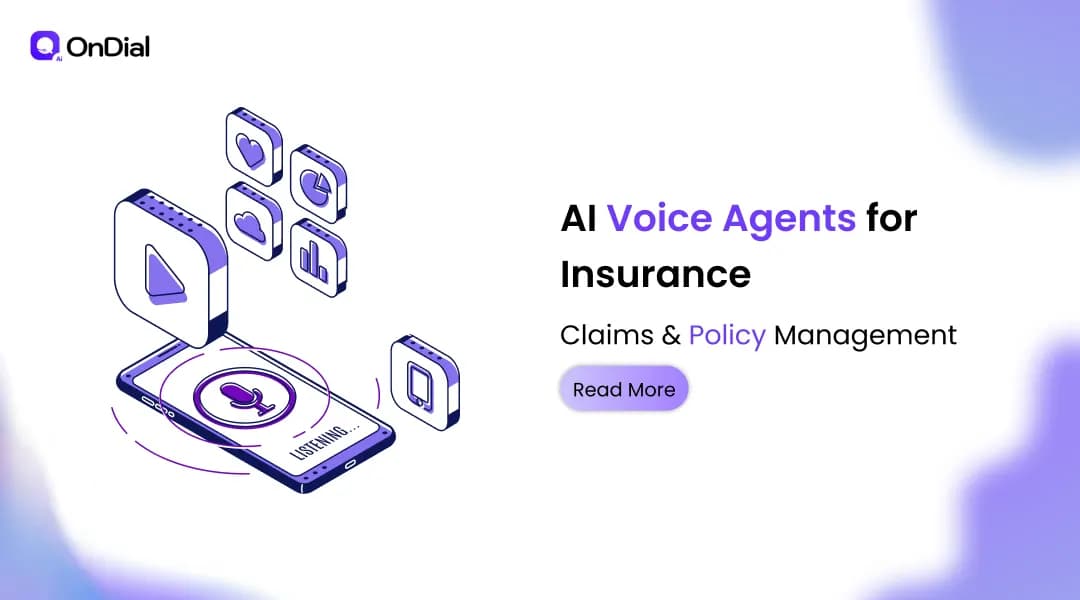
Automate insurance claims and policy support with AI voice agents that cut call volumes, speed processing, and improve customer experience.
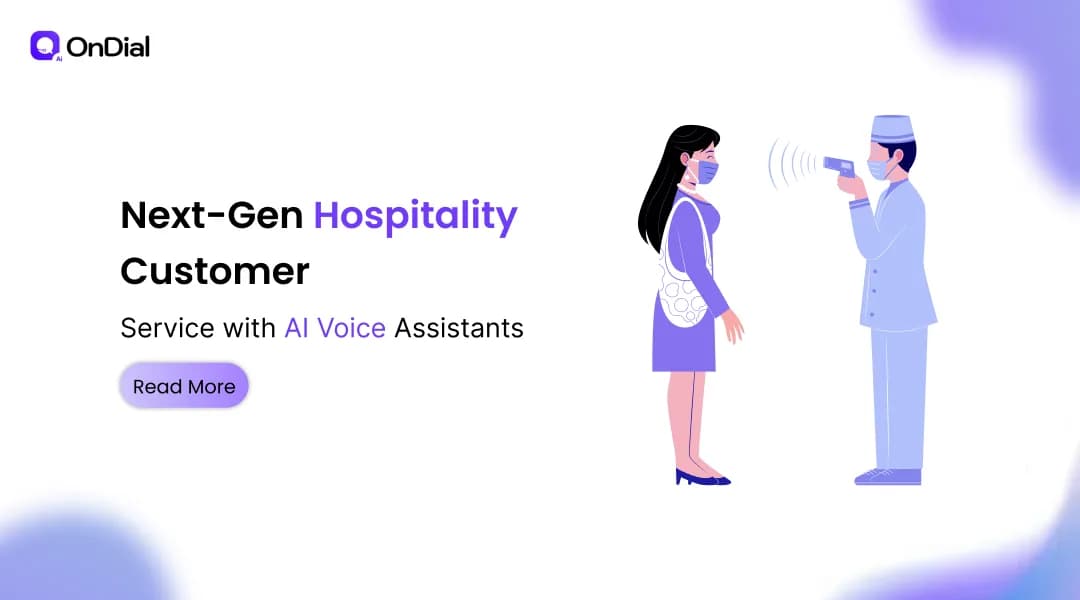
Upgrade hotel guest support with AI voice assistants. Deliver 24/7 service, faster bookings, and smarter hospitality customer experience. | OnDial
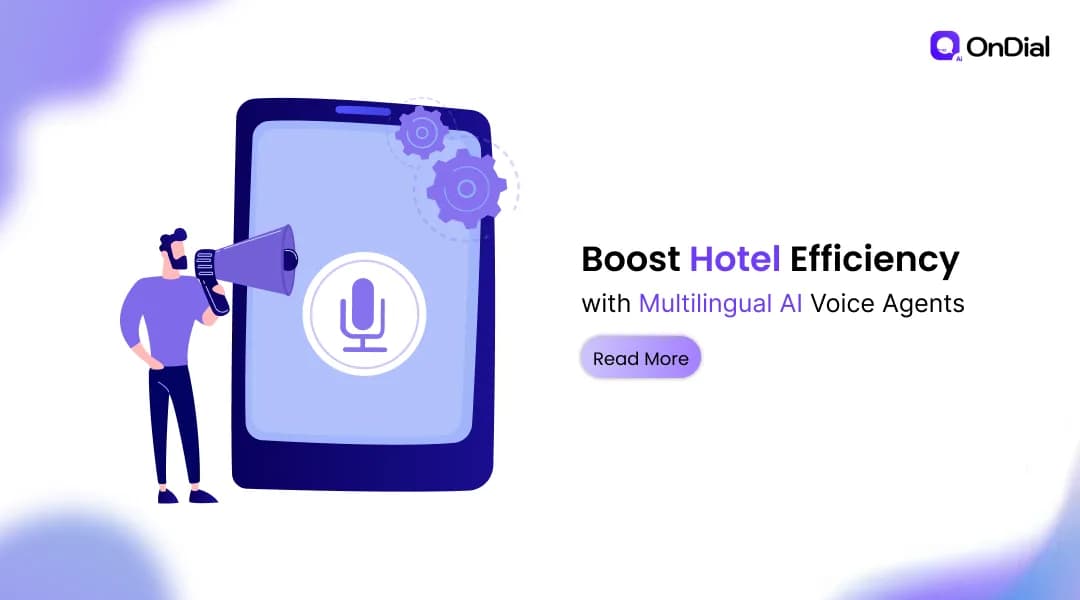
Improve hotel operations with multilingual AI voice agents that manage bookings, guest calls, and support 24/7 while reducing front desk workload.
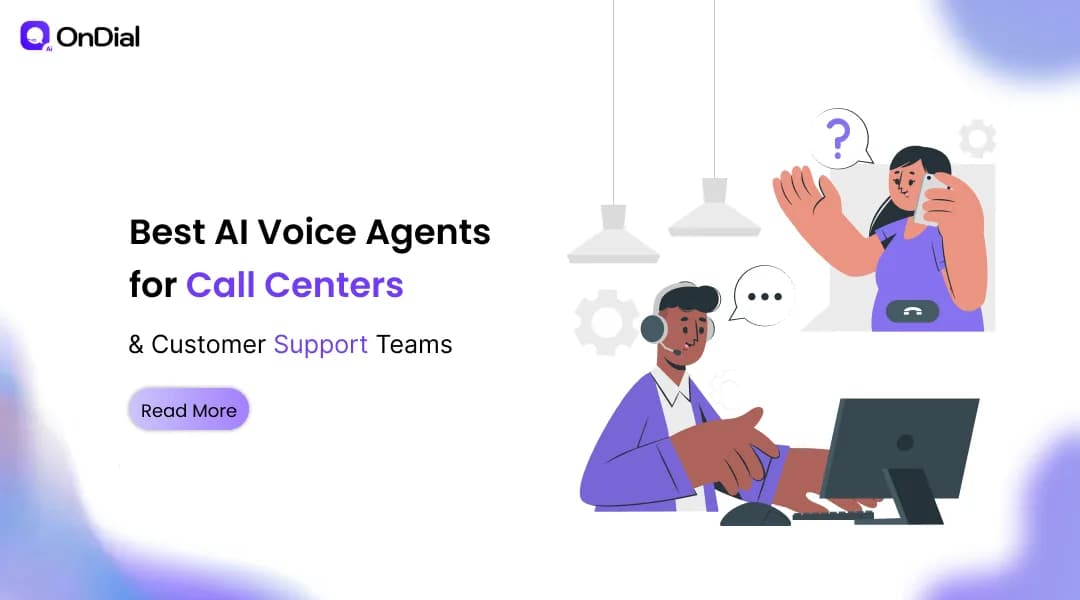
Discover the best AI voice agents for call centers in 2026. Compare features, use cases, benefits, and how to choose the right solution. | OnDial
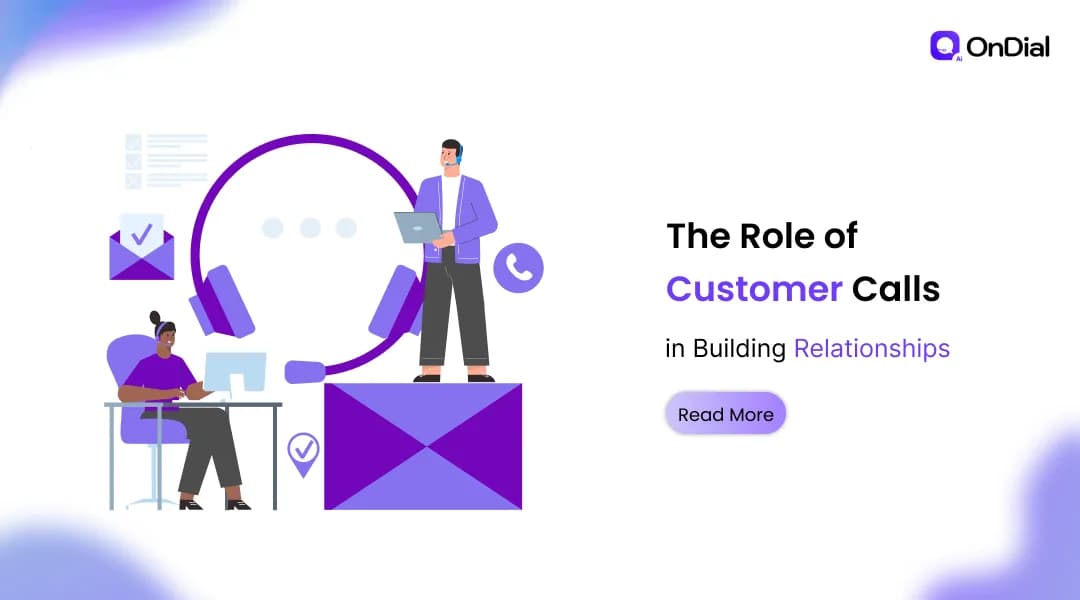
Customer calls create trust, clarity, and connection. Learn how meaningful conversations strengthen relationships and improve customer loyalty.
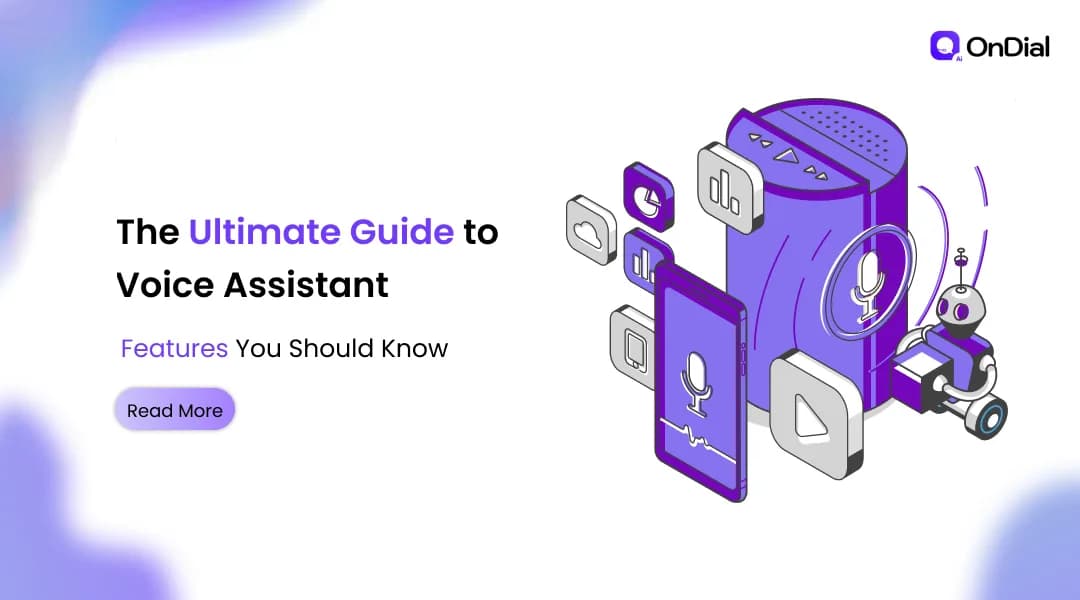
Discover the most important voice assistant features, how they work, benefits, limitations, and what the future of AI voice assistants looks like.
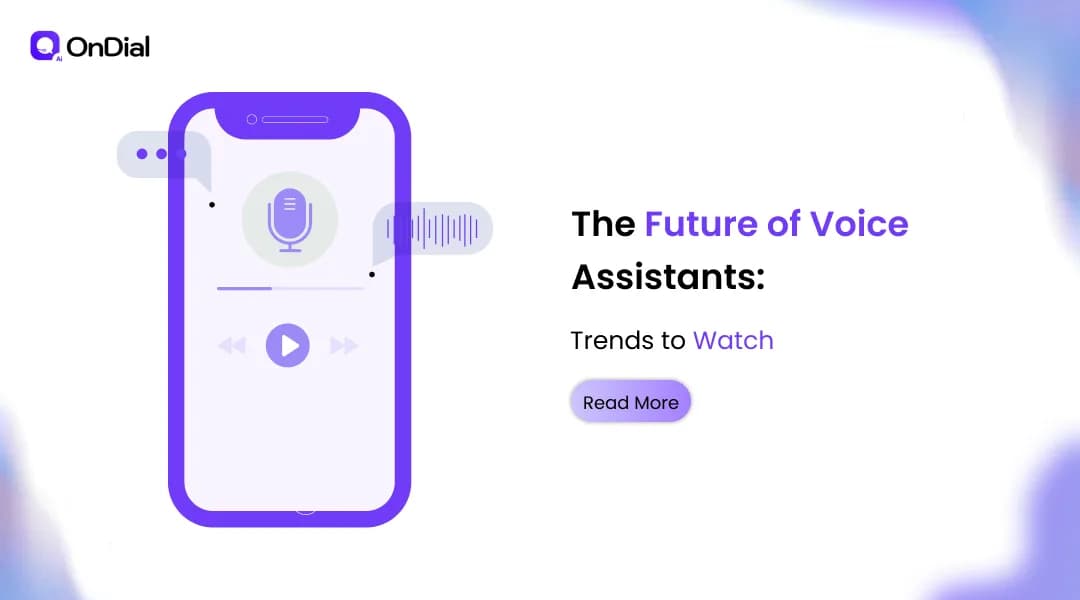
What’s next for voice assistants? Explore AI voice trends, enterprise use cases, and how businesses can prepare for a voice-first future. | OnDial
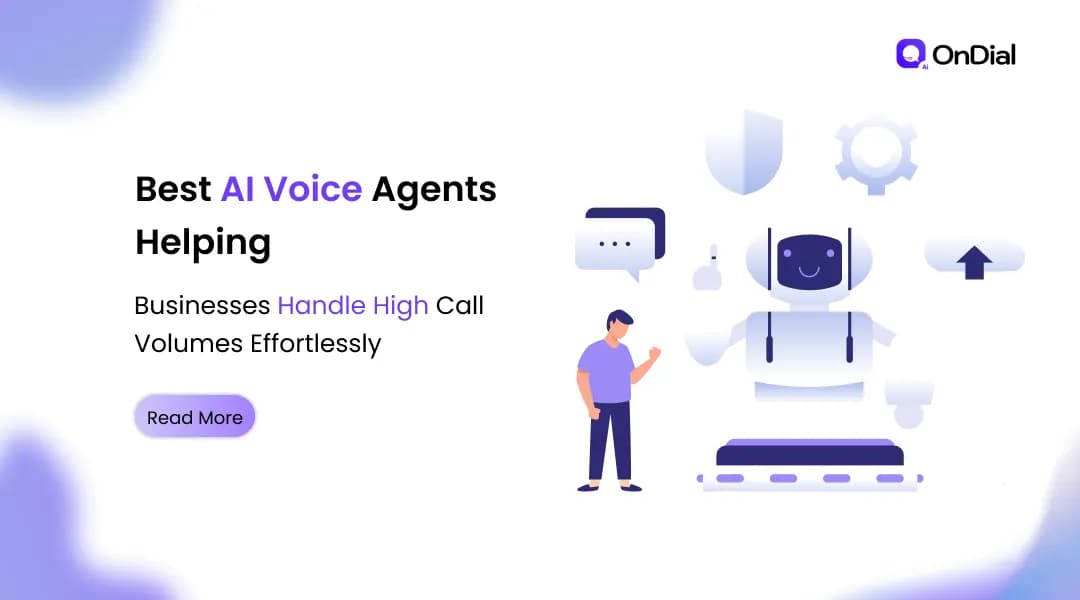
Discover the best AI voice agents helping businesses manage high call volumes, reduce wait times, and improve customer experience at scale.
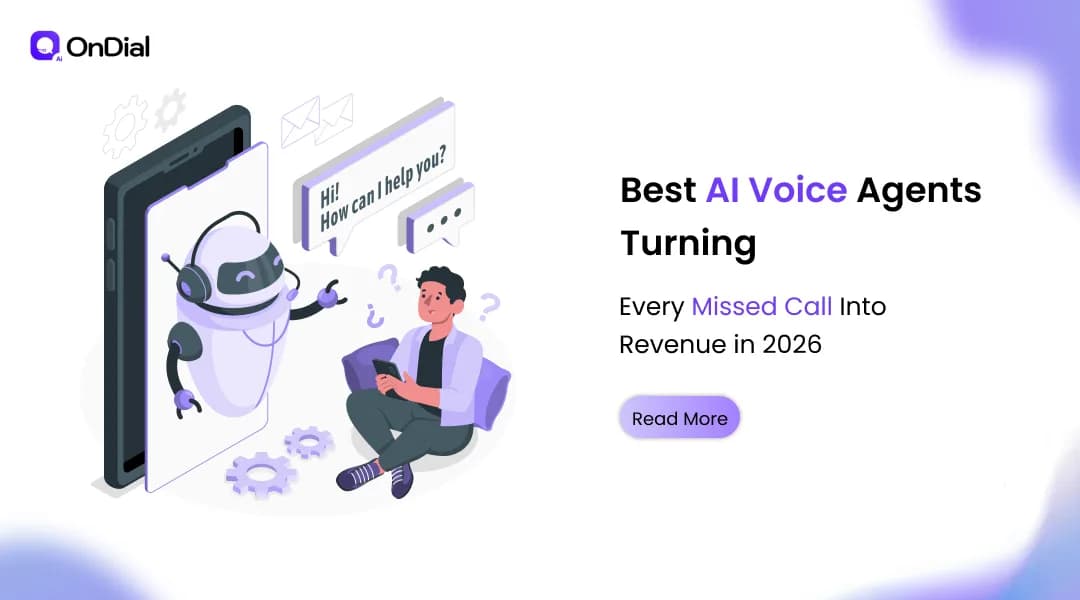
Missing calls means losing money. Discover the best AI voice agents in 2026 that answer every call, qualify leads, and drive revenue automatically.
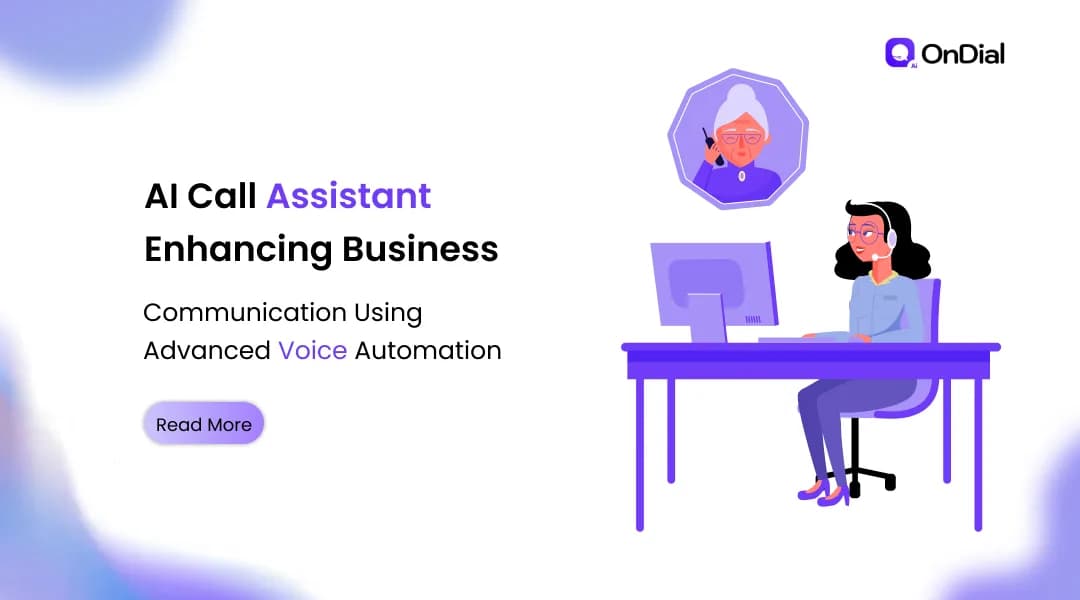
Discover how AI call assistants reduce missed calls, improve customer experience, and scale voice operations with intelligent automation. | OnDial
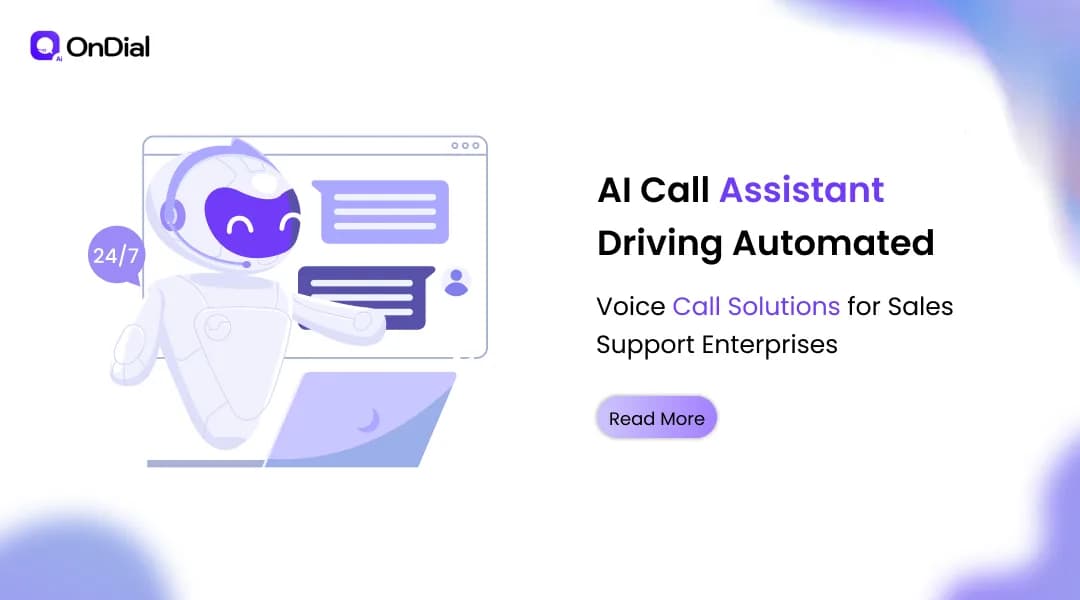
Are AI call assistants replacing sales teams or fixing broken follow-ups? Learn how automated voice call solutions scale sales without losing trust.
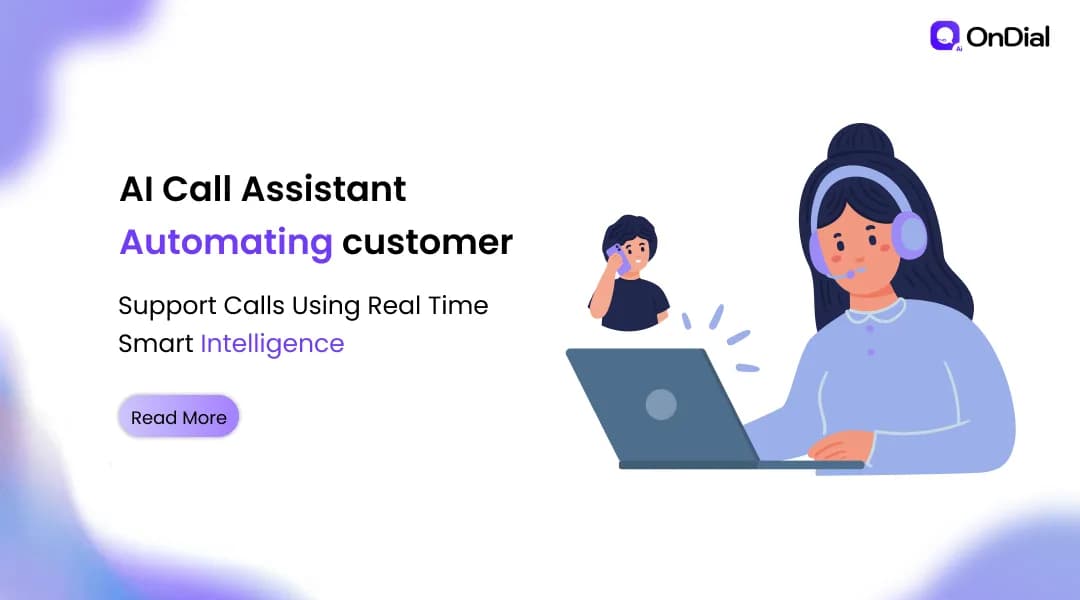
See how AI call assistants use real-time intelligence to automate customer support calls, cut response times, and improve service quality.
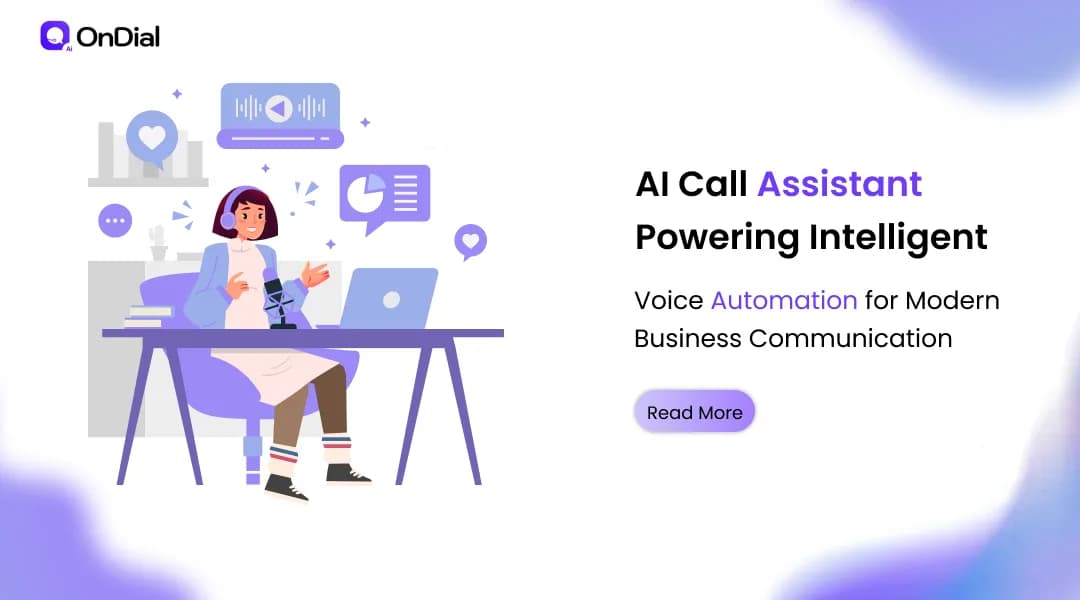
Discover how AI call assistants power intelligent voice automation, reduce call centre costs, and transform modern business communication. | KriraAI
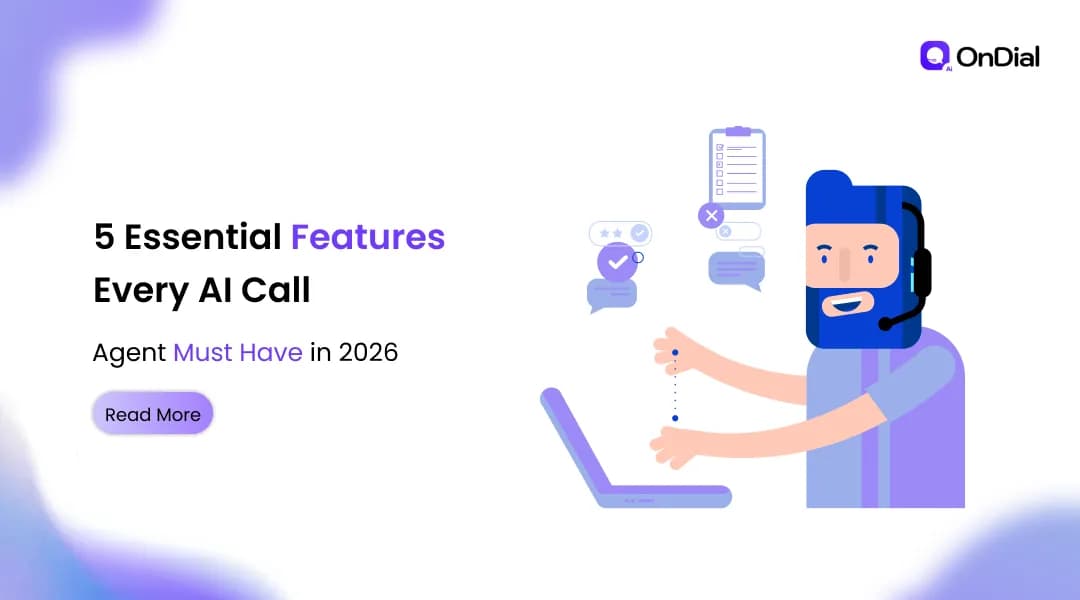
Discover the 5 must-have features every AI call agent needs in 2026 to reduce missed calls, improve CX, and scale sales & support operations. | OnDial

Missed business calls cost revenue. Learn how an AI Calling Agent answers 24/7, captures leads, and improves customer communication automatically.

Discover how an AI calling agent transforms call operations with automation, scalability, and better customer experience for growing businesses.
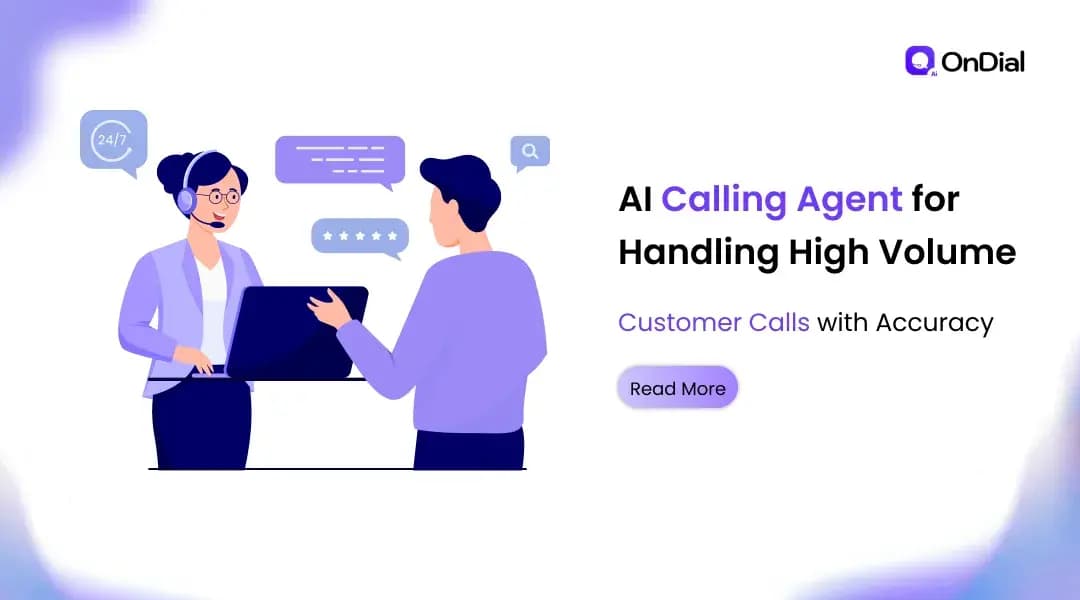
See how AI calling agents handle high-volume customer calls with speed and accuracy while improving CSAT and reducing agent workload.
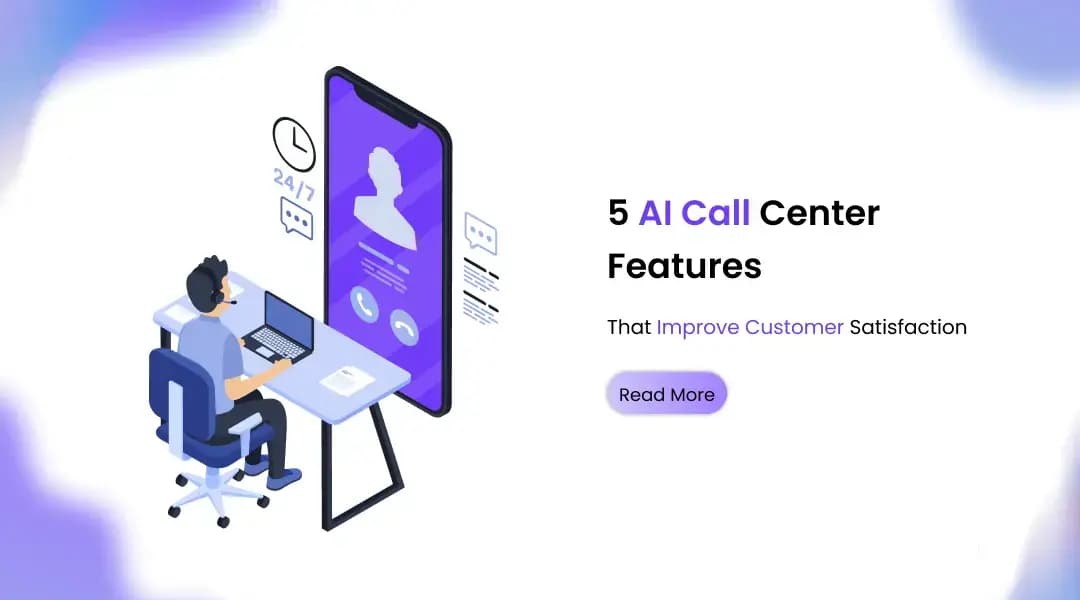
Discover 5 AI call center features that boost CSAT, reduce wait times, and deliver faster, more personalized customer support experiences.
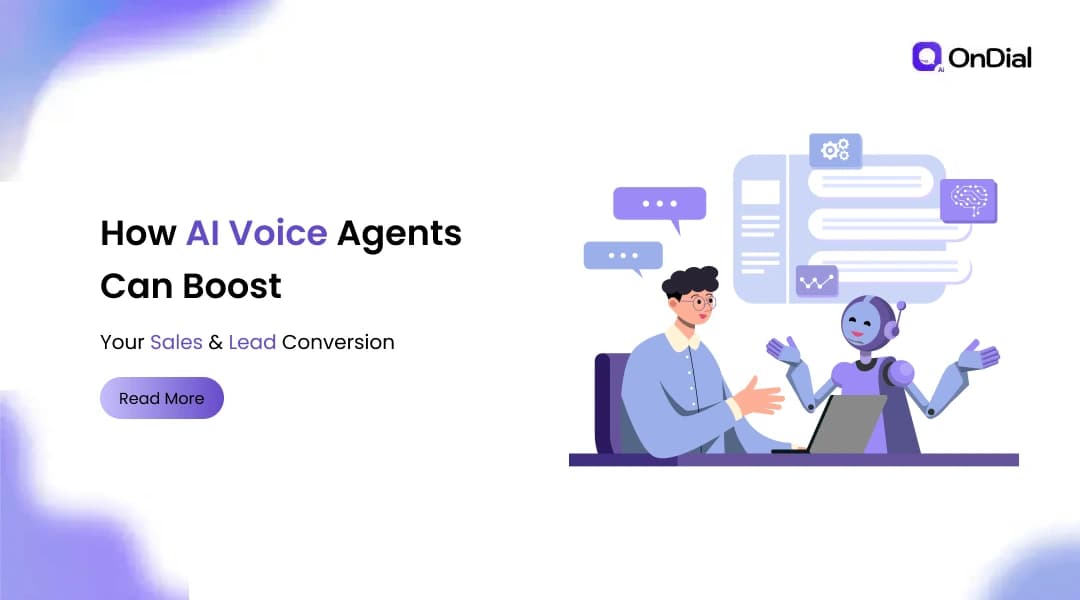
AI voice agents close deals while you sleep. Learn how smart sales teams use voice AI to qualify leads, boost conversions, and scale revenue without hiring.
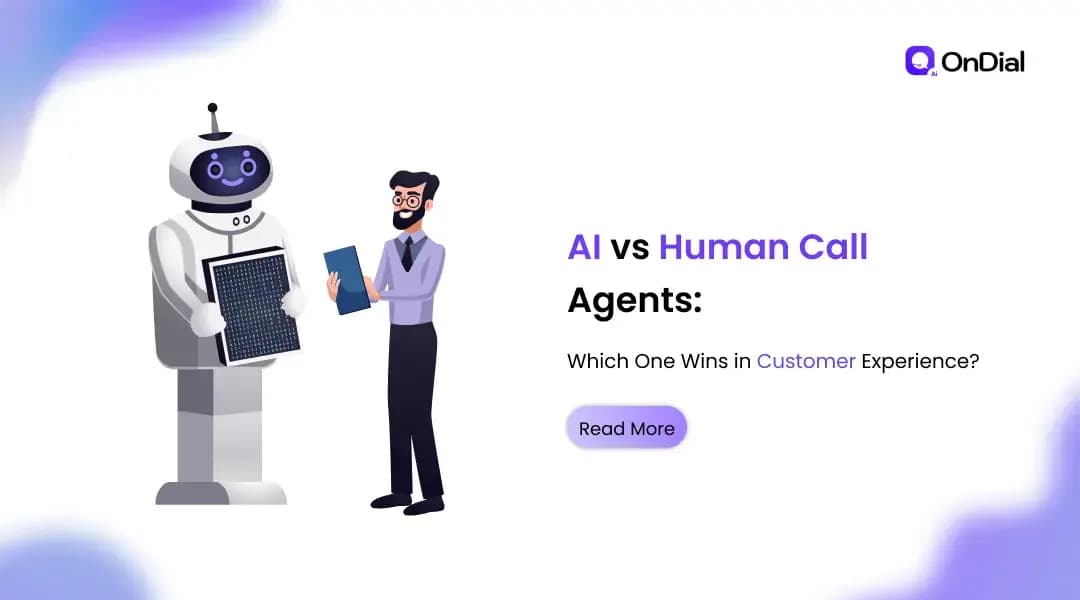
AI vs human call agents compared on cost, empathy, speed, and CX. Discover who really wins—and why hybrid models outperform both. | OnDial

Struggling with missed calls and slow follow-ups? Discover how AI phone call automation responds instantly, qualifies leads, and doubles conversions.
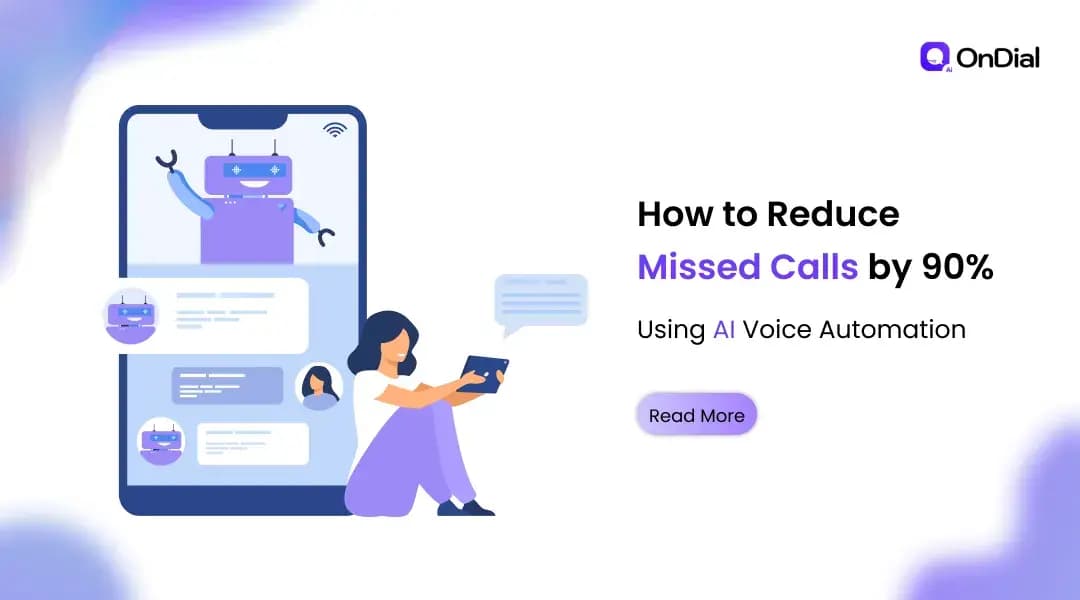
AI call automation for real estate helps you respond instantly, reduce missed calls, qualify leads faster, and improve customer engagement 24/7. | OnDial
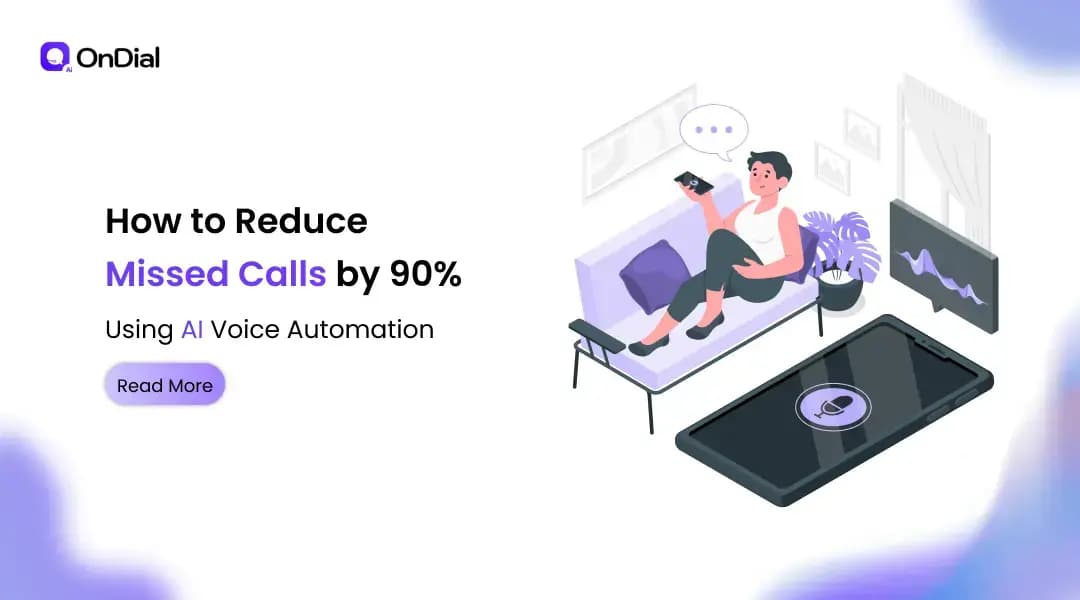
Cut missed calls by 90% using AI voice automation—boost sales, customer satisfaction, and never miss another opportunity. | OnDial
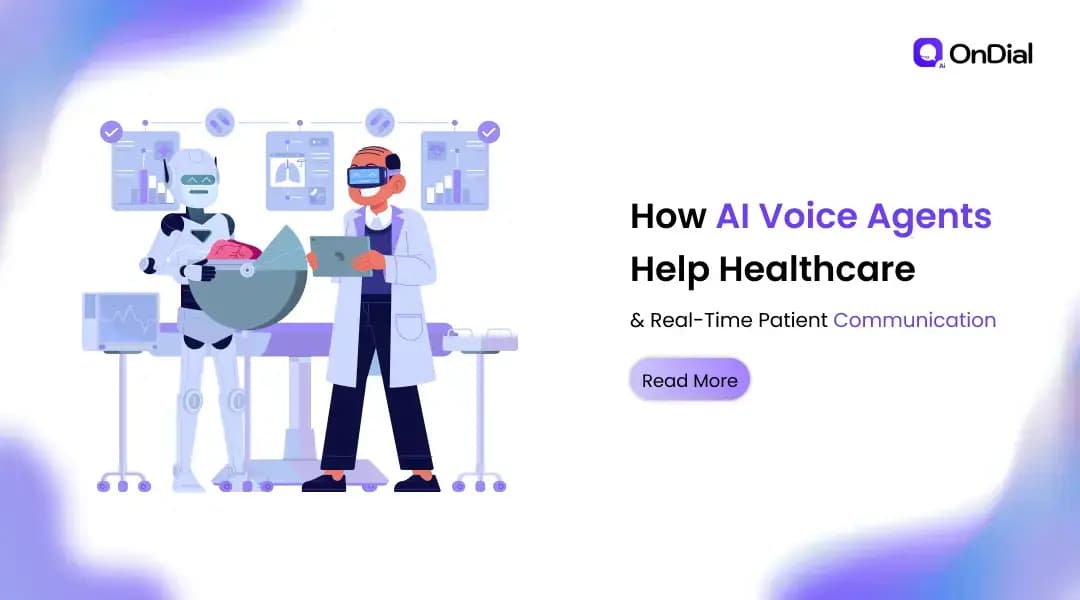
Discover how AI voice agents transform healthcare communication with real-time patient calls, reminders, follow-ups, and better care experiences.
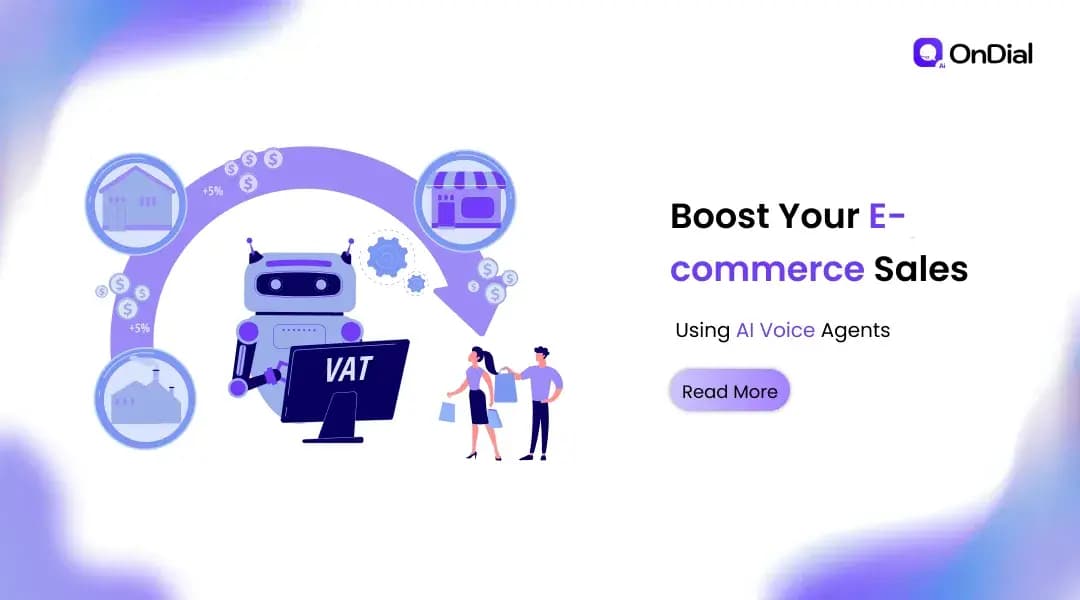
Discover how AI voice agents recover abandoned carts, automate customer calls, and boost e-commerce sales with real use cases and ROI insights.
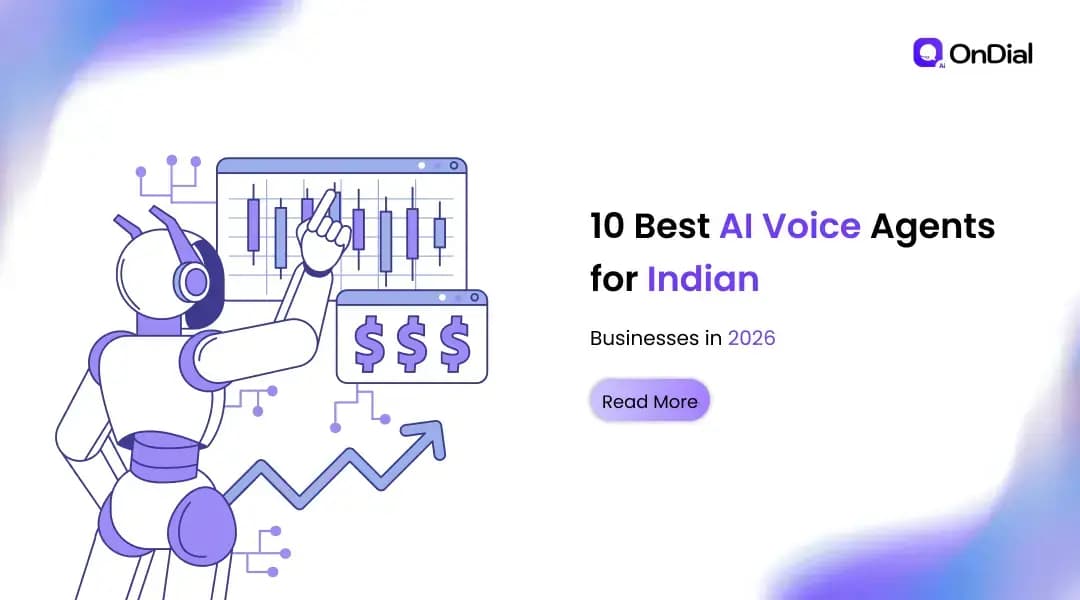
Discover the 10 best AI voice agents for Indian businesses in 2026. Compare features, pricing & see why OnDial is the top AI voice calling solution.
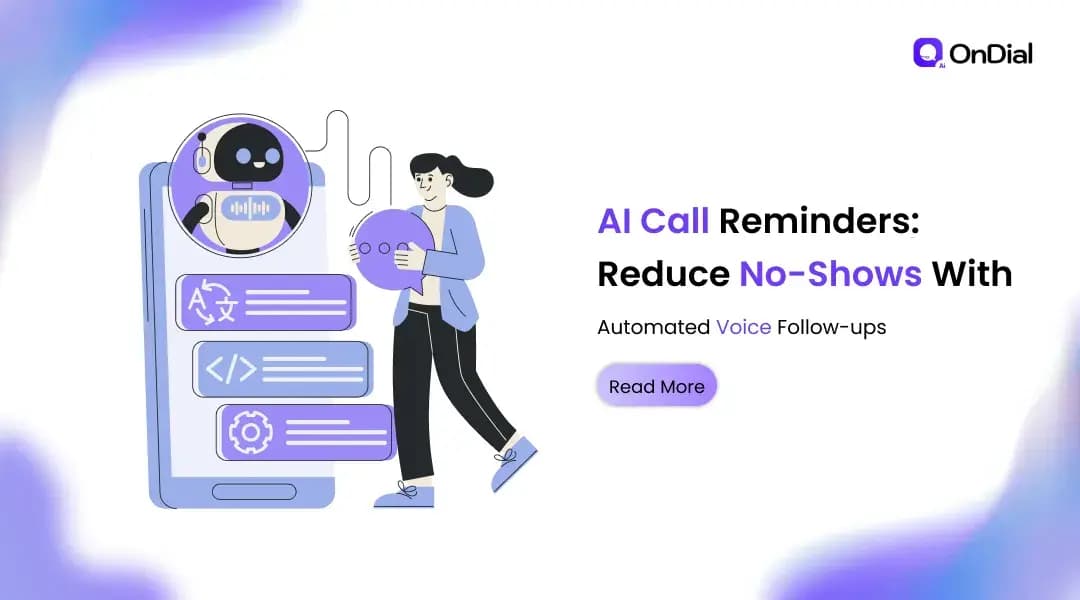
Missed appointments cost money. Learn how AI call reminders and automated voice follow-ups reduce no-shows where SMS and WhatsApp fail.
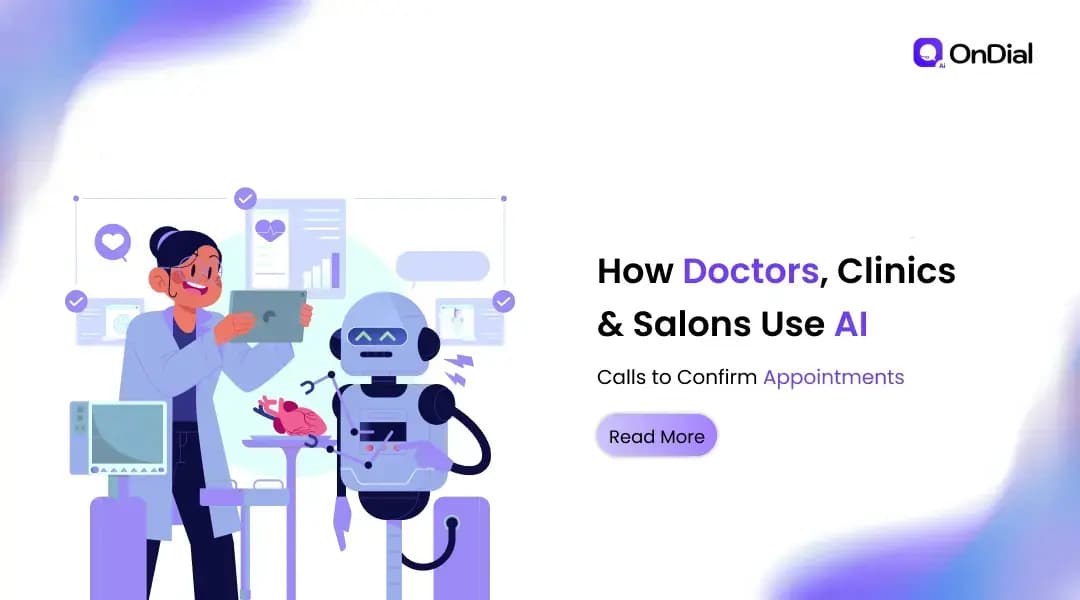
Learn how AI appointment confirmation calls help clinics and salons reduce cancellations, automate calling, and improve customer experience.
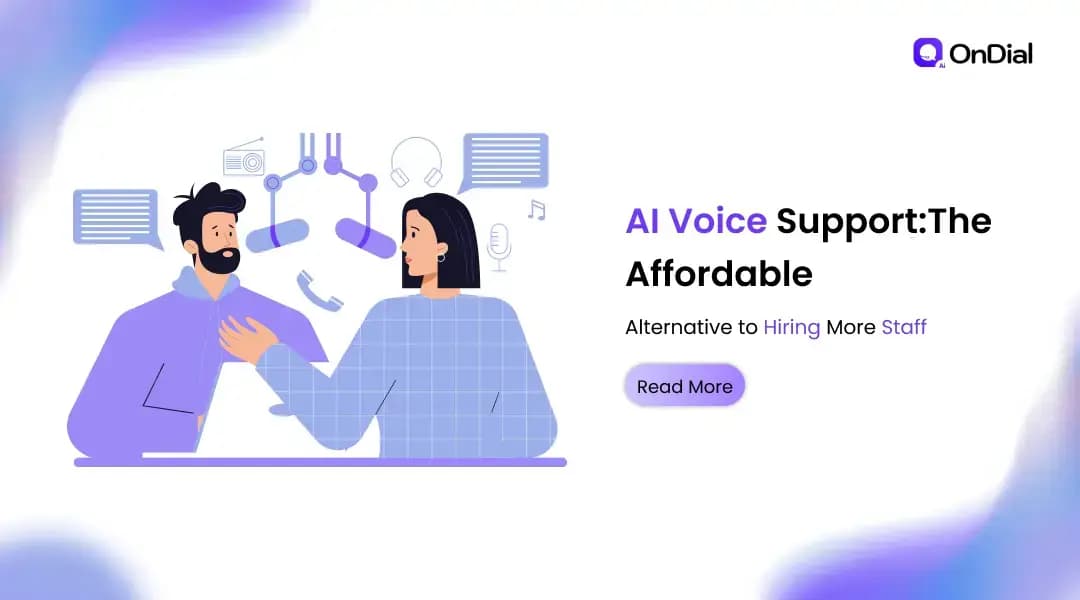
Struggling with rising support costs? AI voice support helps businesses handle more calls without hiring more staff—24/7 and cost-effectively.
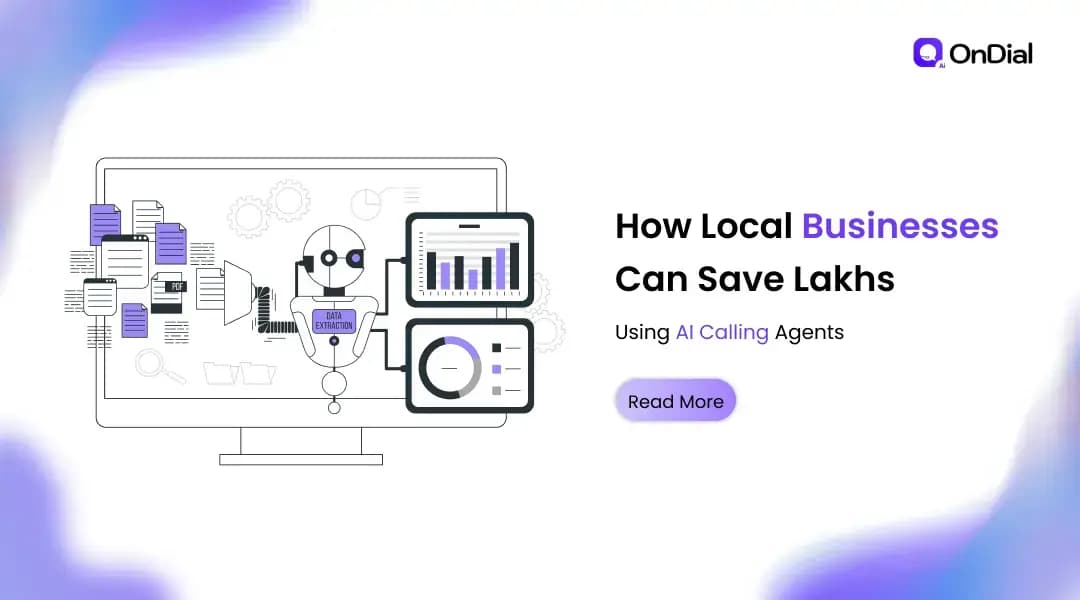
Discover how local businesses cut support costs, reduce staff dependency, and save lakhs using AI calling agents that handle customer calls 24/7.
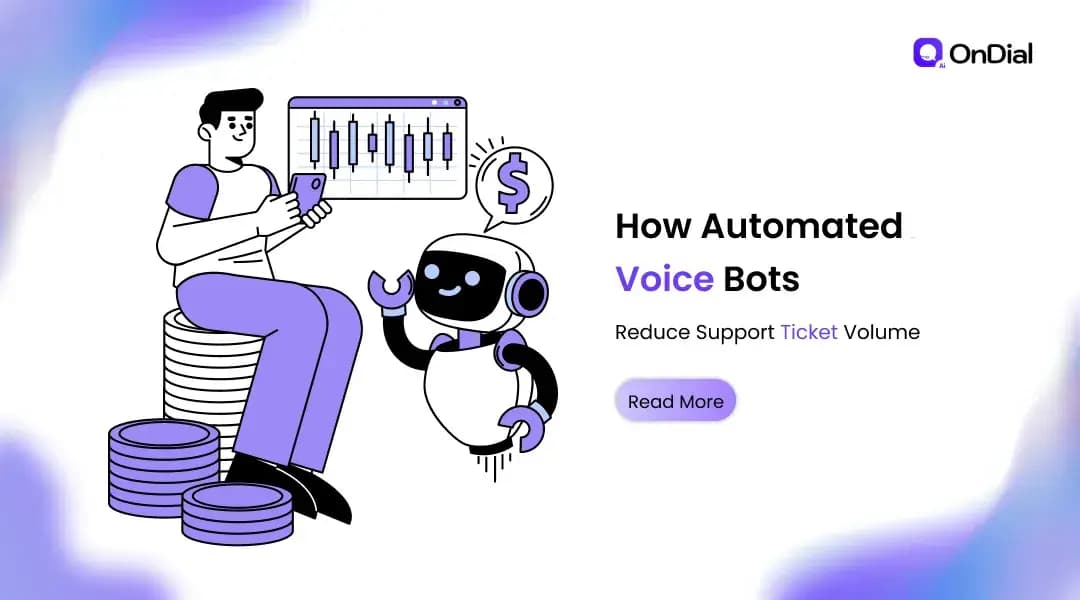
Support tickets keep rising for a reason. Learn how automated voice bots deflect calls, resolve issues faster, and cut support volume without hurting CX.
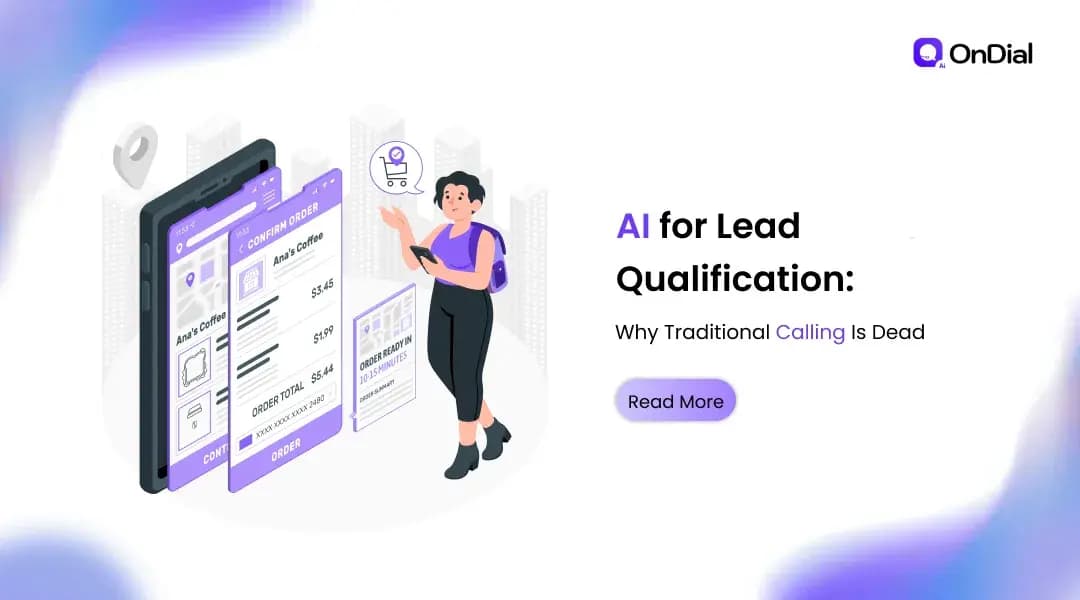
Traditional lead calls waste time and money. Discover how AI voice agents qualify leads faster, smarter, and at scale - without human burnout.
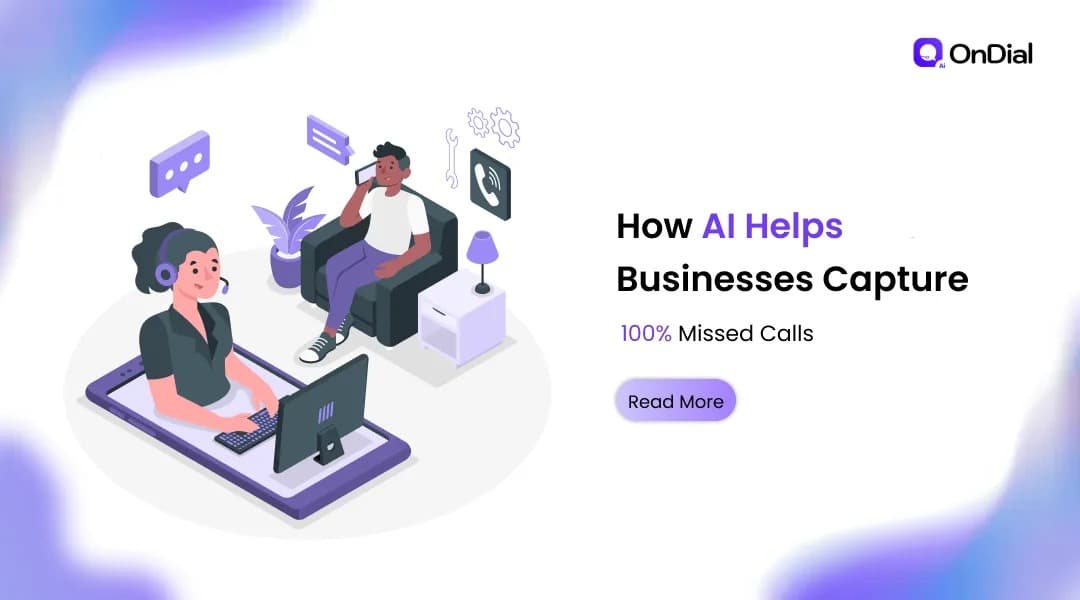
Learn how AI call answering systems help businesses capture every missed call using smart voice agents and automated call handling.
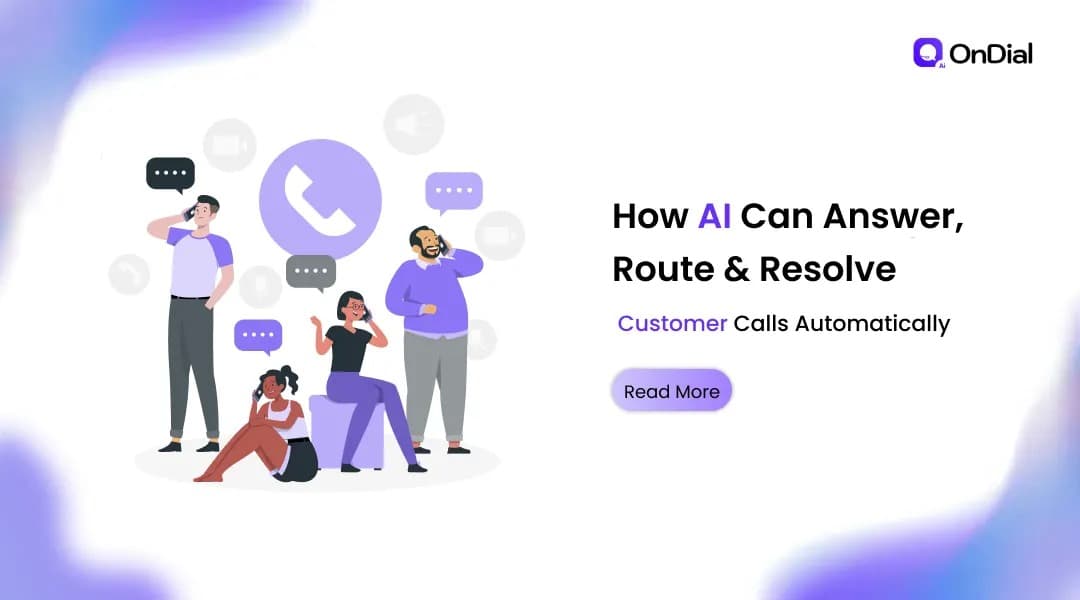
Discover how AI answers customer calls, routes them correctly, and resolves issues automatically—reducing wait times and support costs.
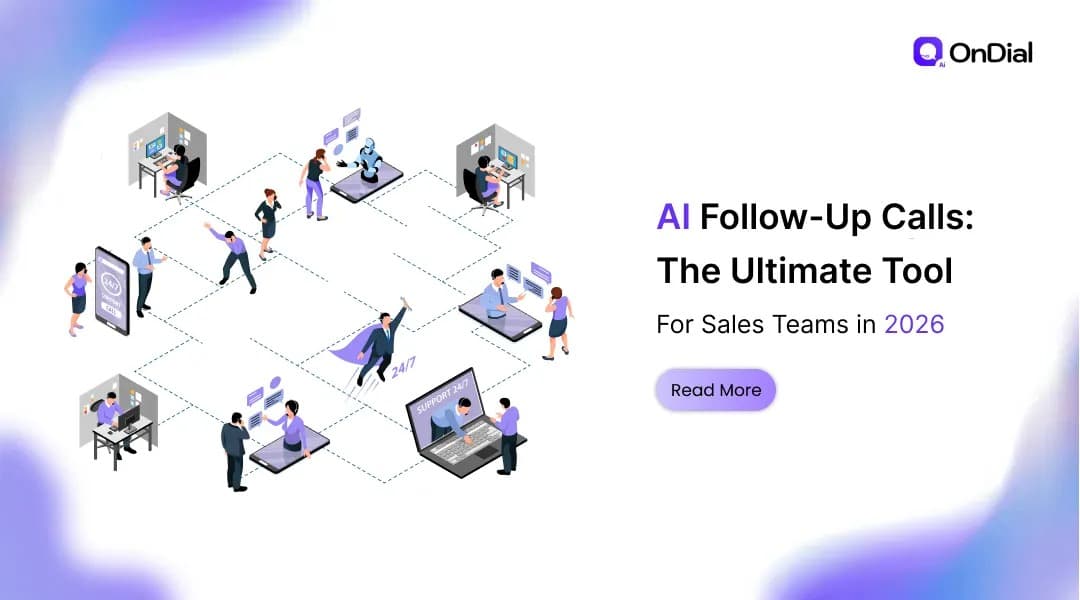
Discover how AI Follow-Up Calls empower sales teams in 2026 to respond faster, nurture leads automatically, and boost conversions without extra manpower.
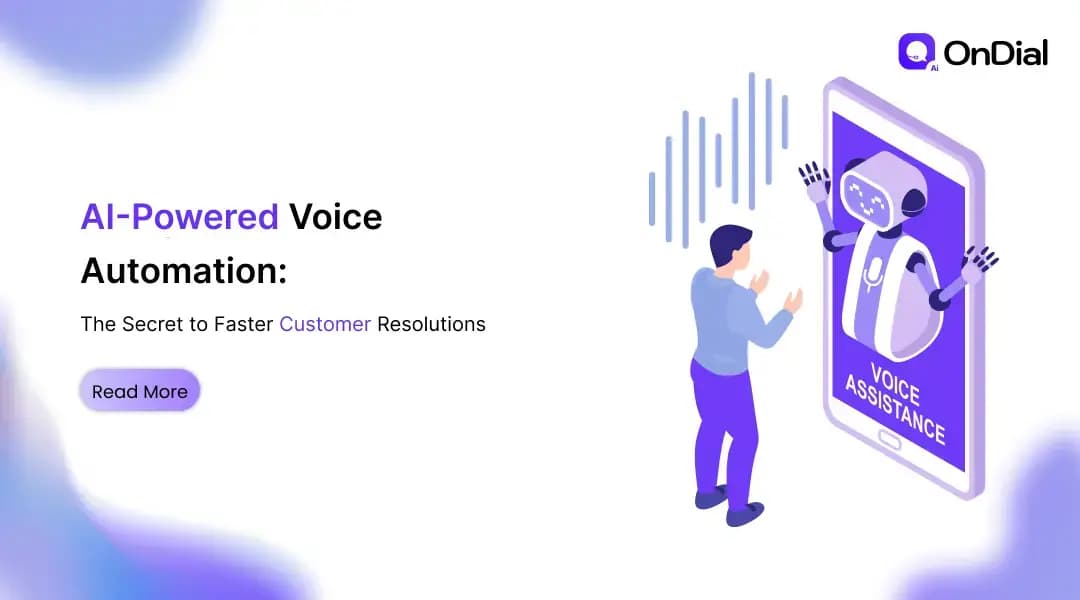
AI-powered voice automation is helping businesses resolve customer queries faster than ever. See how it works and why companies are adopting it now.
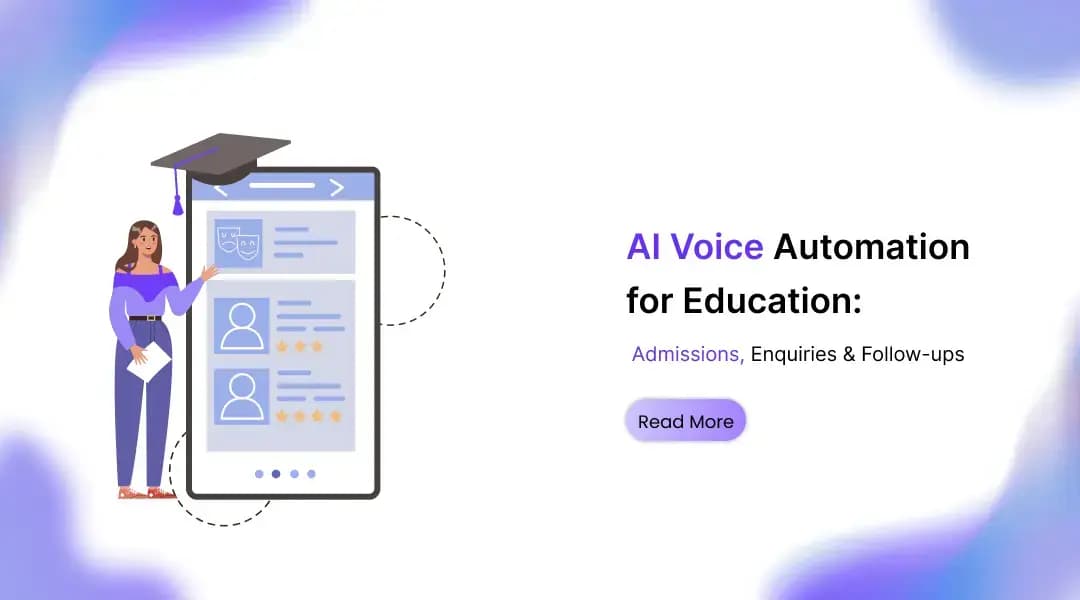
Transform admissions, enquiries, and follow-ups with AI voice automation for education. Faster responses, higher engagement, and seamless student support.
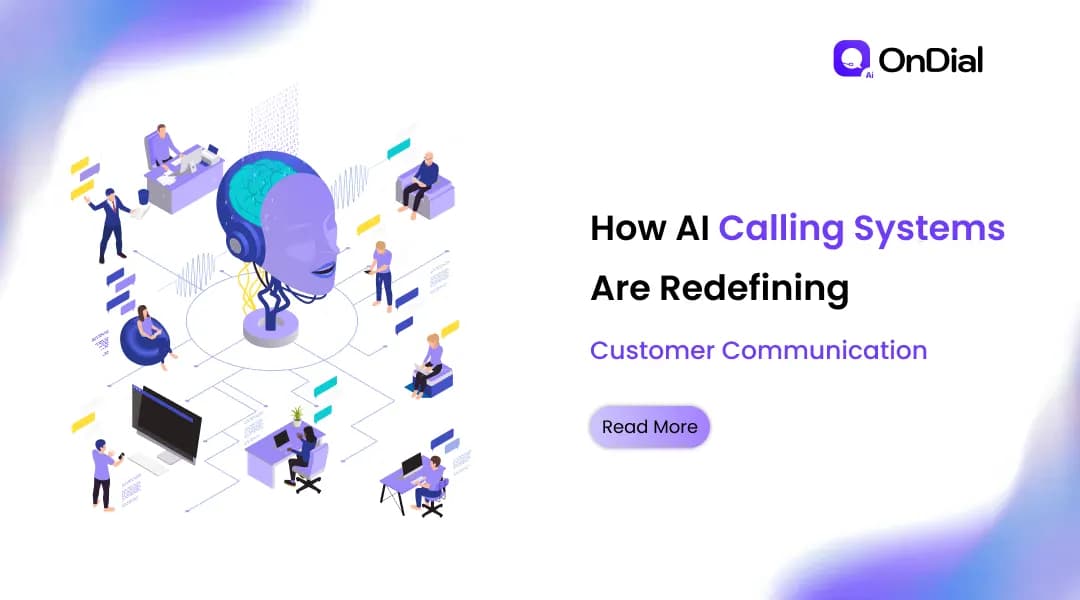
AI phone agents vs human agents - who delivers better customer experience? A clear, honest comparison to help you choose the right CX strategy.
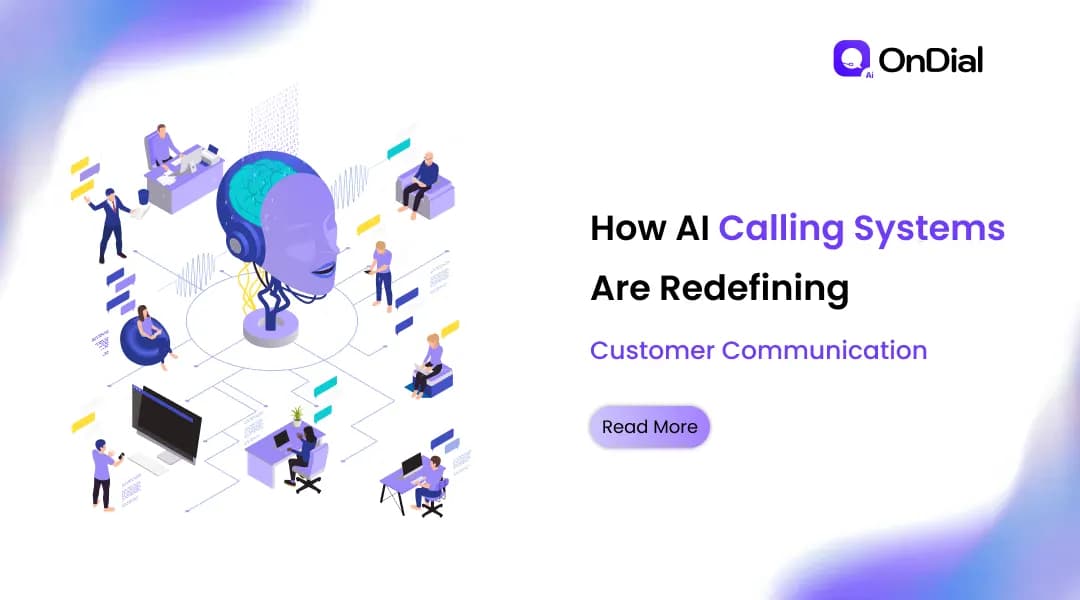
Discover how AI calling systems transform customer communication with faster response times, automation, and personalised interactions for modern businesses.
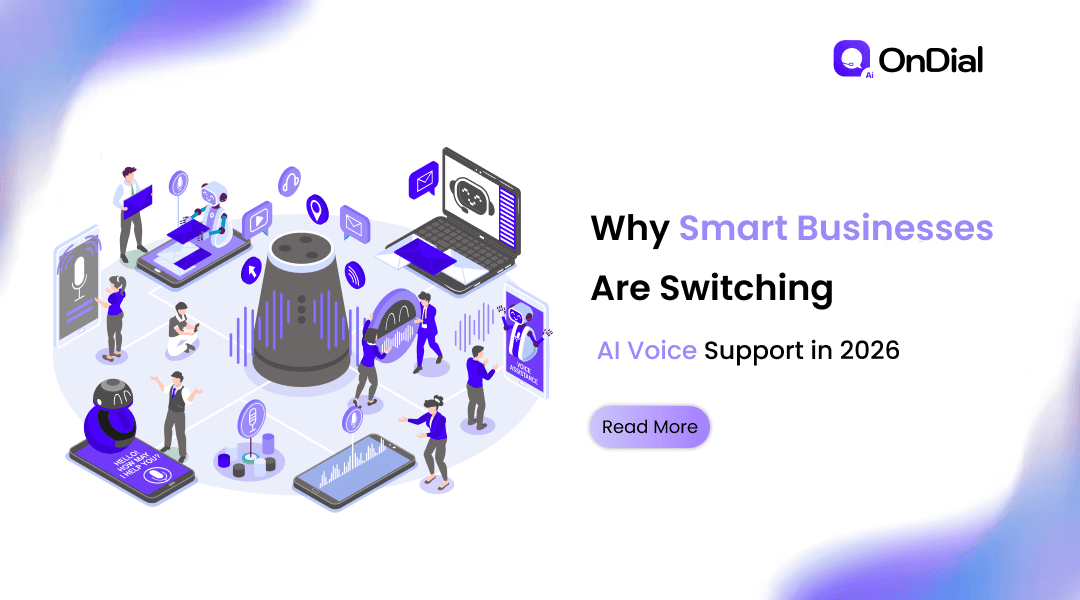
Smart businesses are shifting to AI voice support in 2026 for faster responses, lower costs, and better CX. See why AI calls are becoming the new standard.
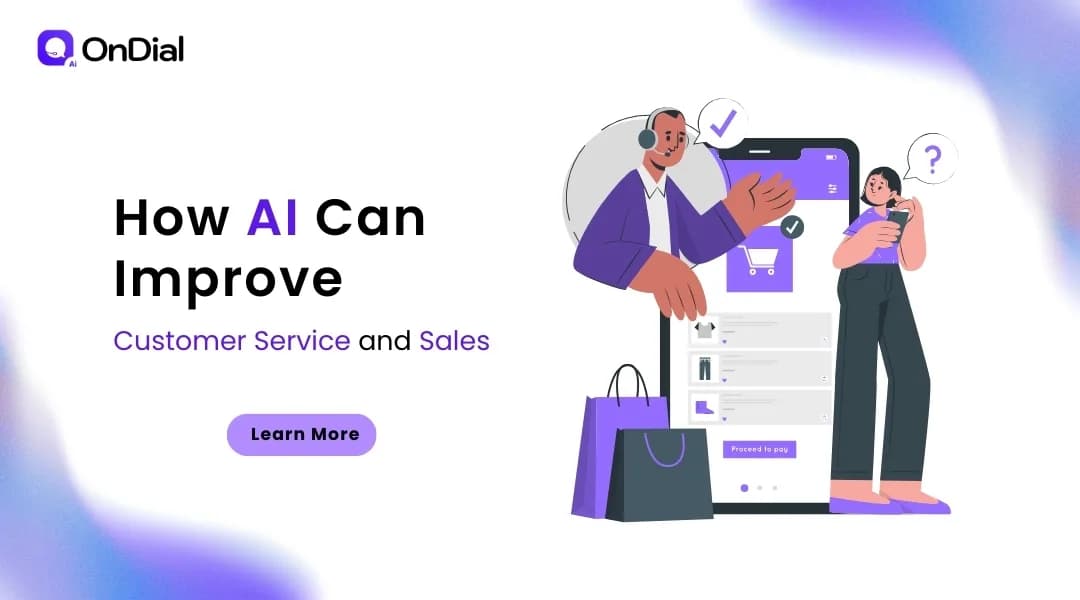
Discover how AI enhances customer service, automates sales processes, improves satisfaction, and drives business growth. Learn key benefits and real examples.
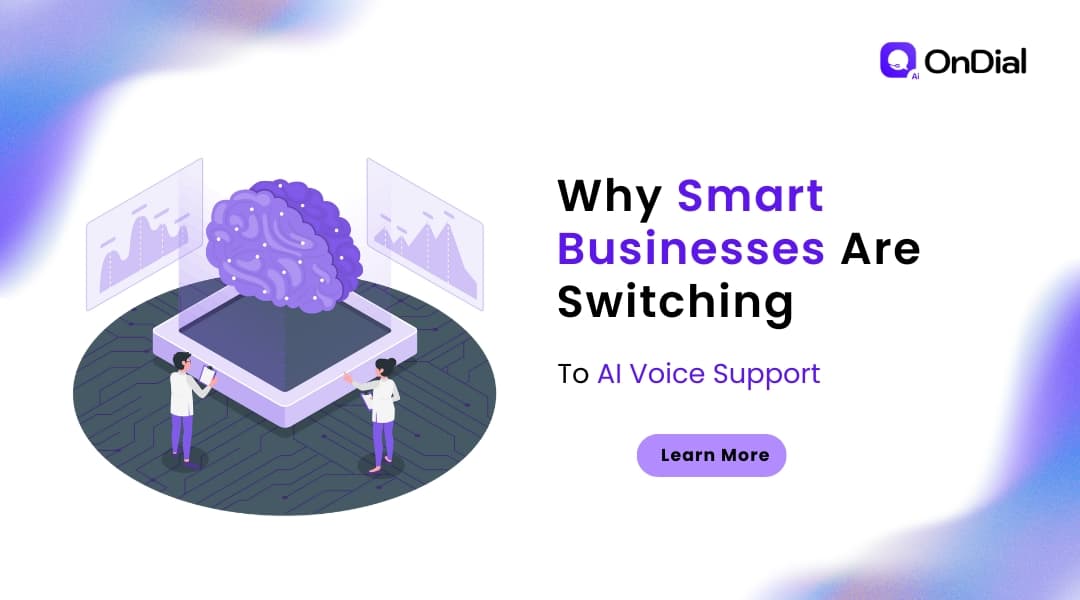
AI voice support is becoming a must-have for growth-focused brands. Learn why more businesses are adopting intelligent voice automation.

AI is transforming customer calls. Discover how businesses use voice automation to handle queries faster, smarter, and with zero manual effort. | OnDial
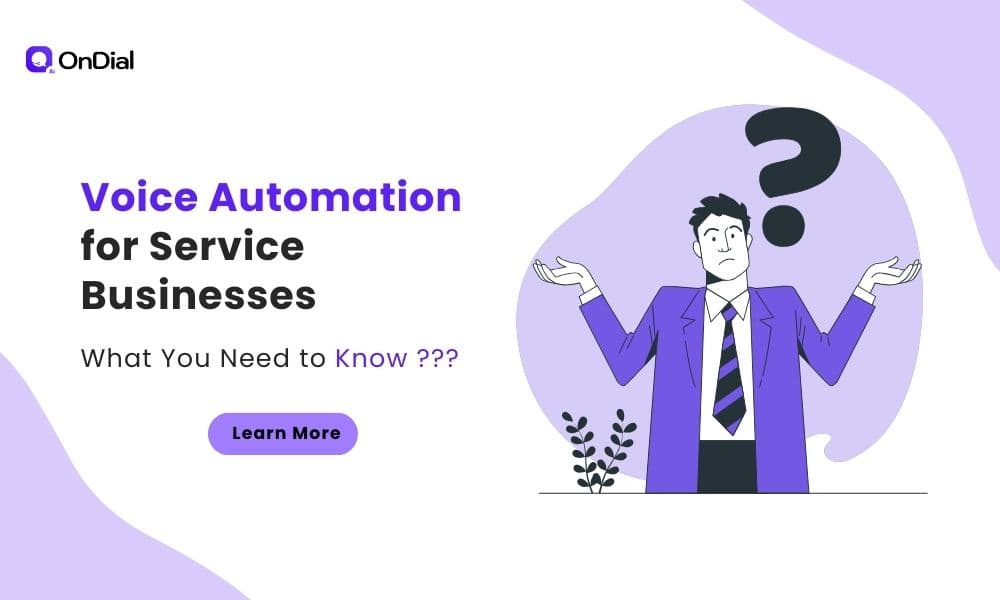
Confused about voice automation for service businesses? This guide explains benefits, costs, use cases, and how to get started with AI voice systems.
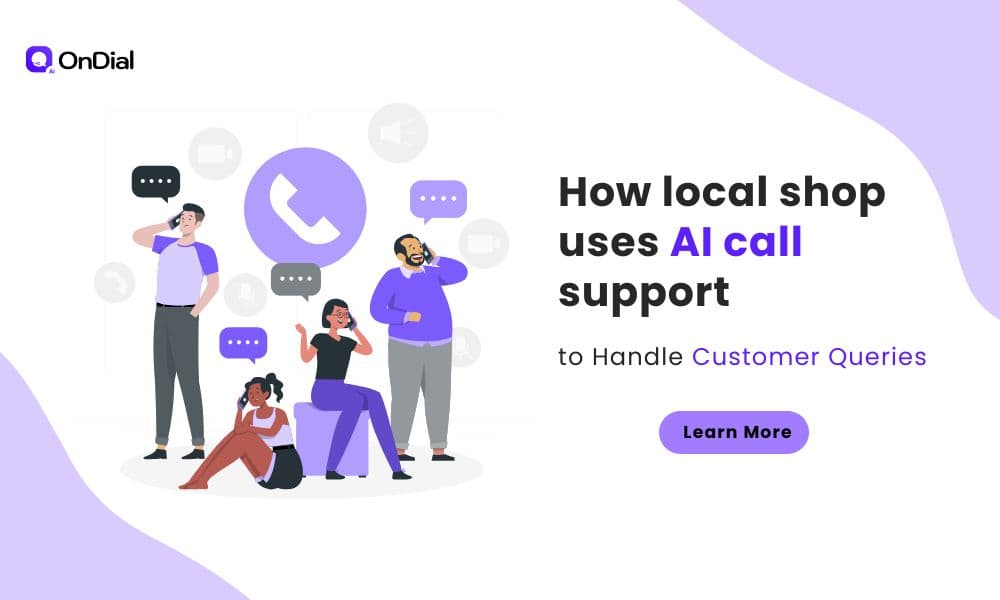
Local shops are now using AI call support to manage customer queries, reduce missed calls, and give faster responses. Here’s how small businesses benefit.
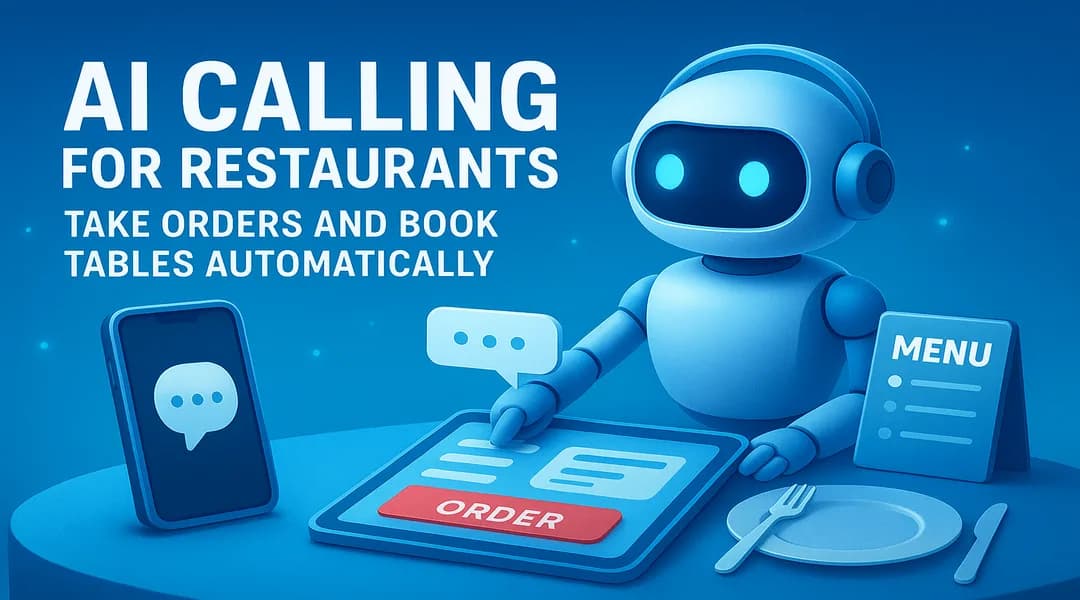
Discover how AI calling helps restaurants take orders and book tables automatically - cut costs, save time, and serve customers faster.
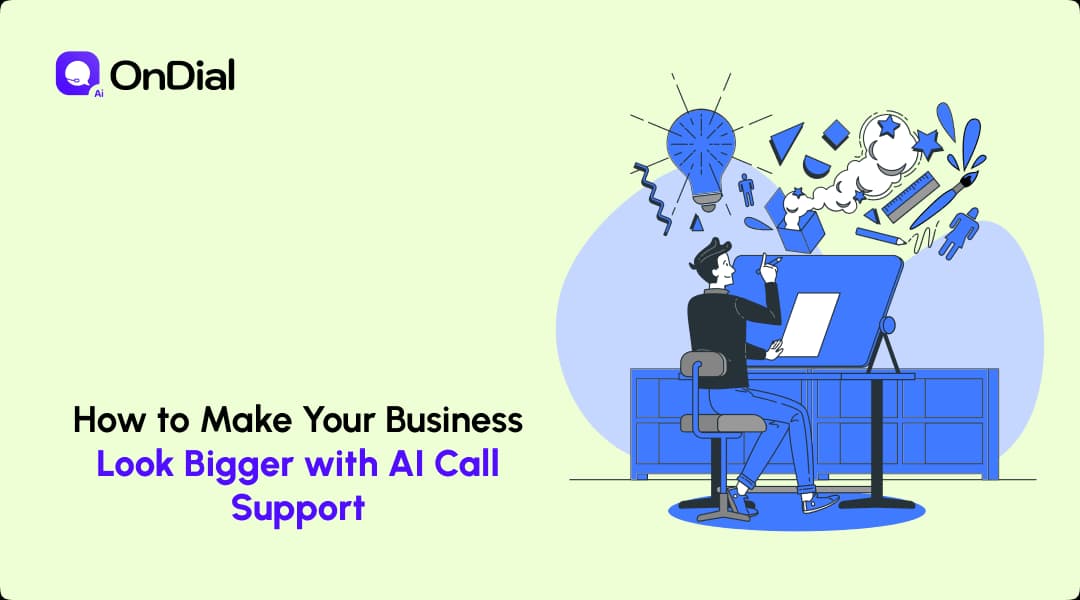
Want to sound like a bigger business without hiring more staff? Discover how AI call support boosts professionalism, trust, and 24/7 customer care.

Discover how AI-powered smart calling helps you capture, qualify, and convert more leads — faster, smarter, and without extra staff. | OnDial

Stop losing leads to missed calls. Discover how AI voice agents can capture, qualify, and convert every call into a sales opportunity. | OnDial
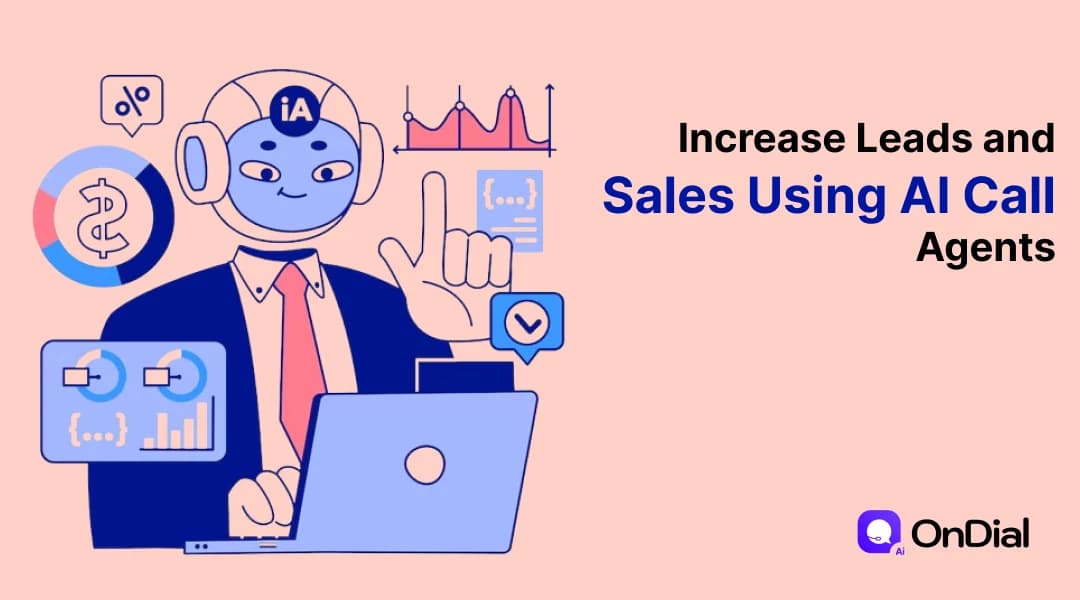
Boost leads and sales with AI call agents. Learn how AI voice assistants can improve engagement, automate calls, and grow your business.
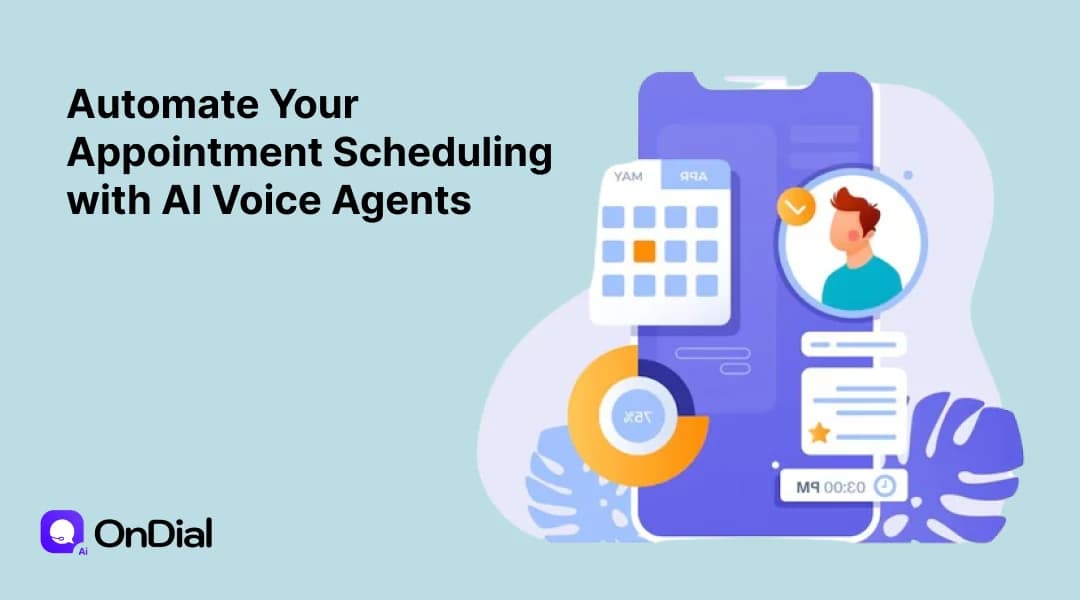
Save time and reduce no-shows by automating appointment scheduling with AI voice agents. Streamline bookings and improve customer experience.

Increase leads and conversions effortlessly with AI-powered outbound call agents that handle calls, follow-ups, and customer engagement for you.
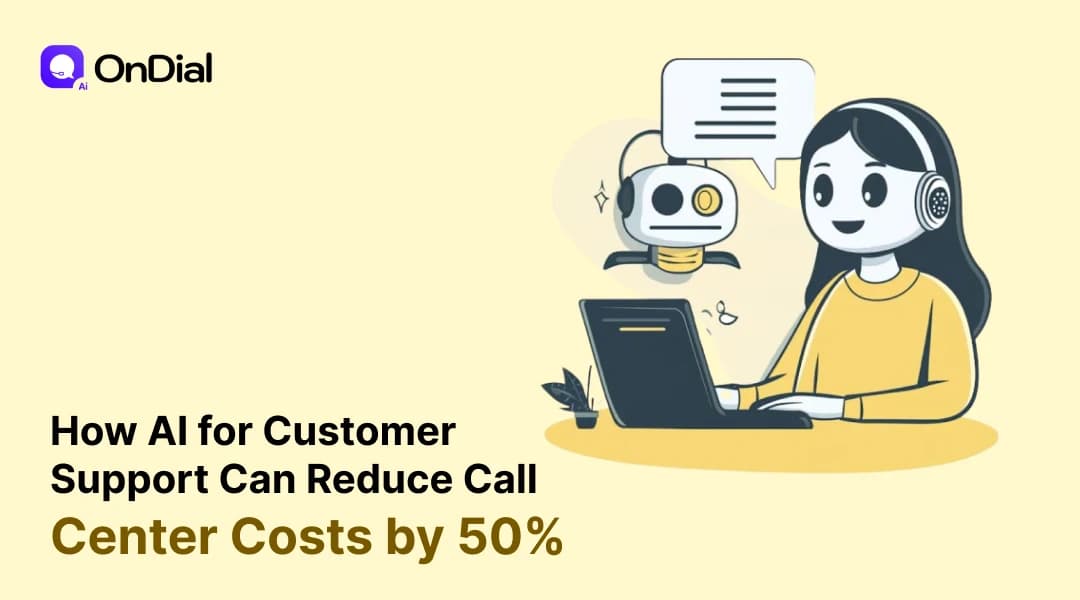
Reduce call center costs by 50% with AI for customer support. Improve efficiency, 24/7 support, and customer satisfaction with OnDial.
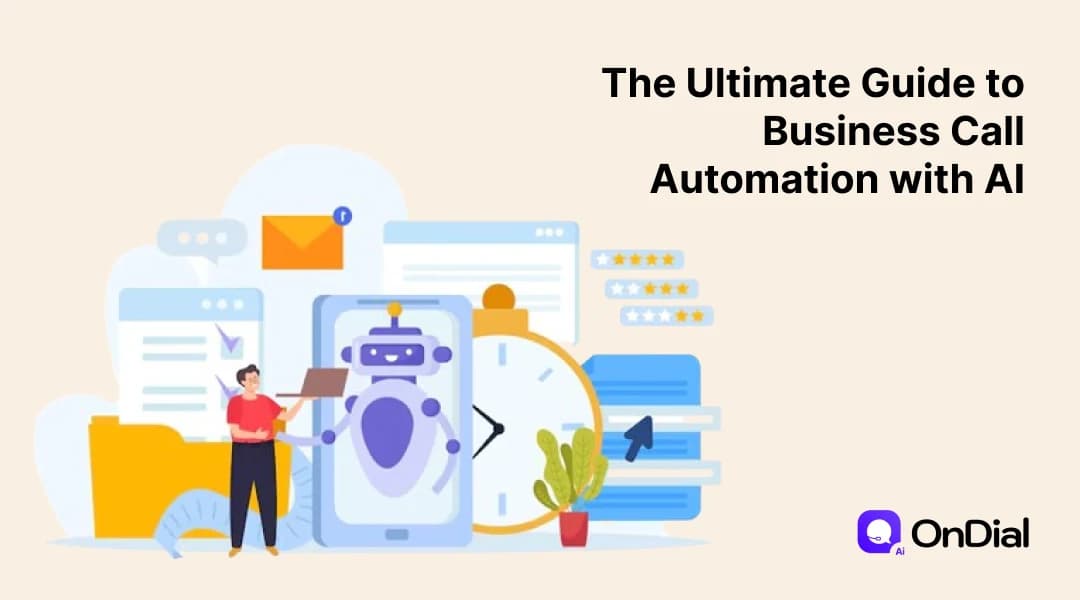
Discover how AI-driven call automation boosts efficiency, reduces costs, and improves customer experience for your business. | OnDial
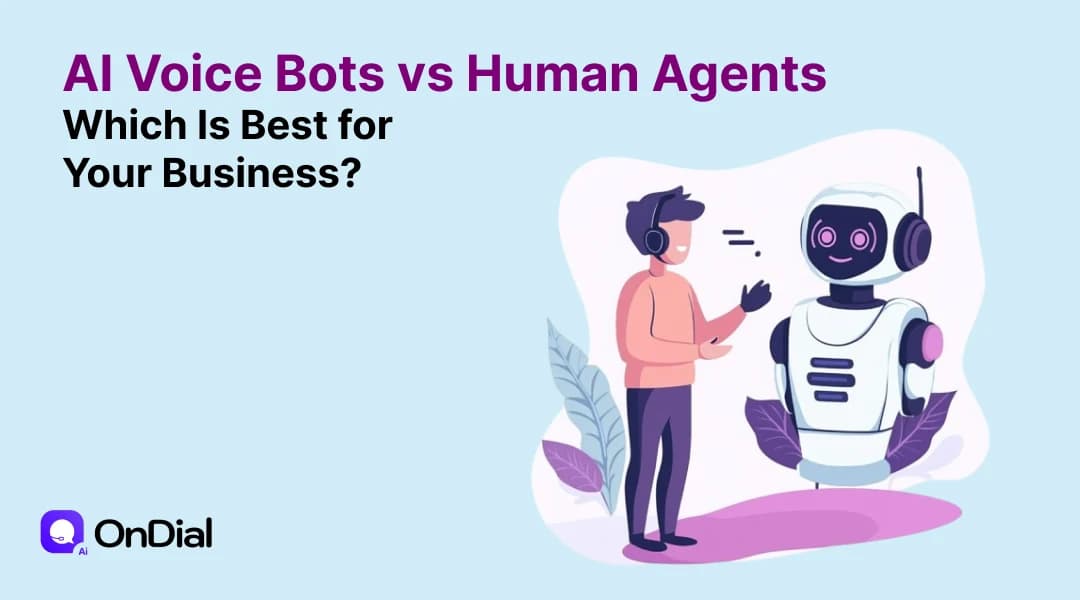
Discover the pros and cons of AI voice bots vs human agents to decide which fits your business needs and boosts customer support efficiency.
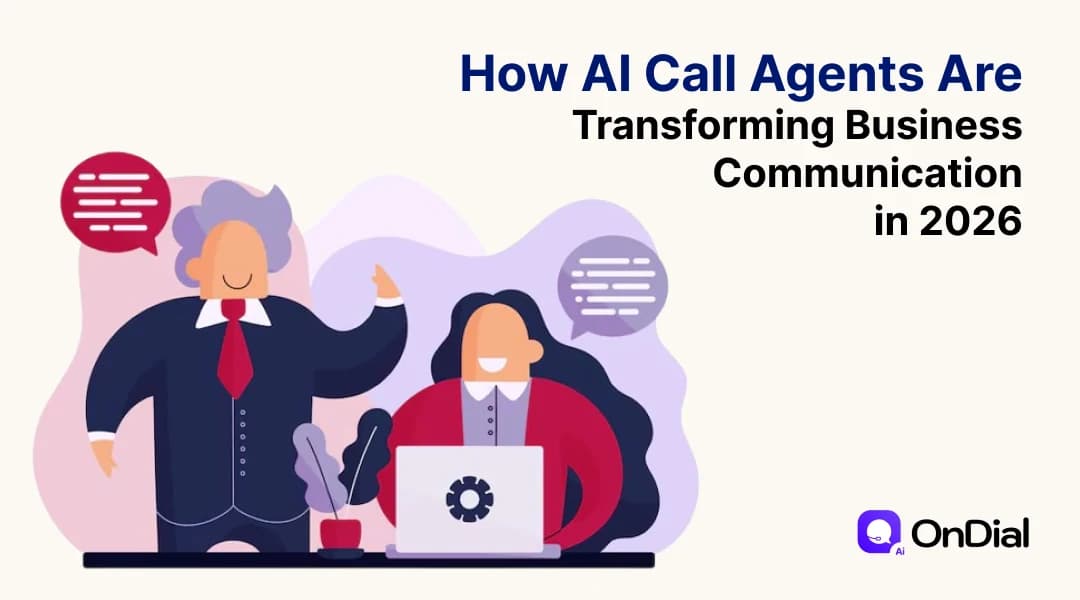
Discover how AI call agents are revolutionizing business communication in 2026 with faster response, cost savings, and smarter customer interactions.
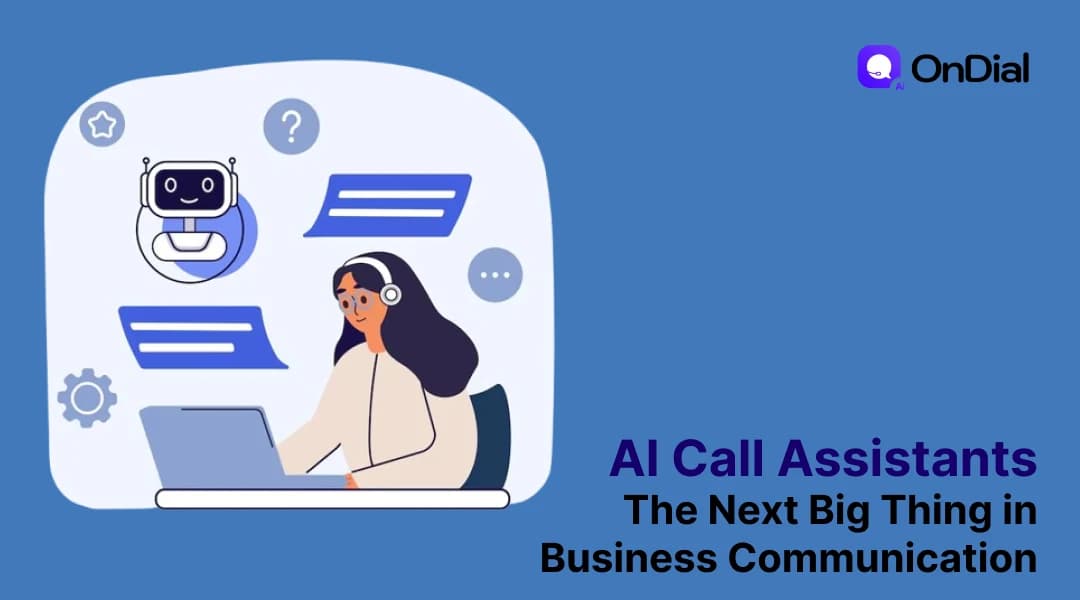
Discover how AI call assistants improve customer experience, boost efficiency, and streamline business communication with real-world applications.
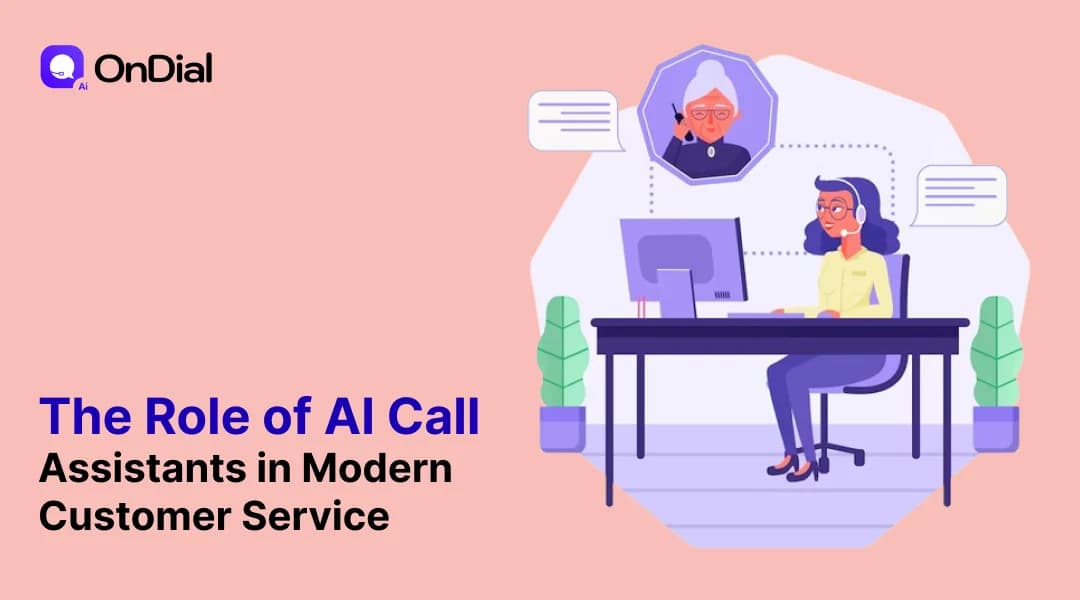
Explore how AI call assistants are transforming customer service with faster responses, personalized interactions, and operational efficiency.
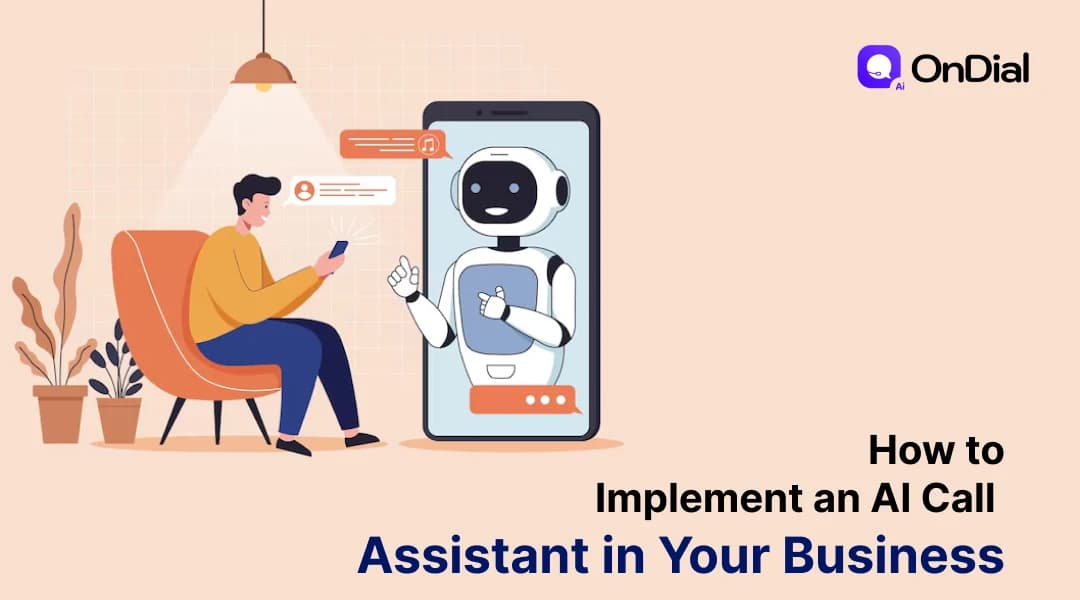
Step-by-step guide to implement an AI call assistant that improves customer communication, boosts efficiency, and supports business growth.
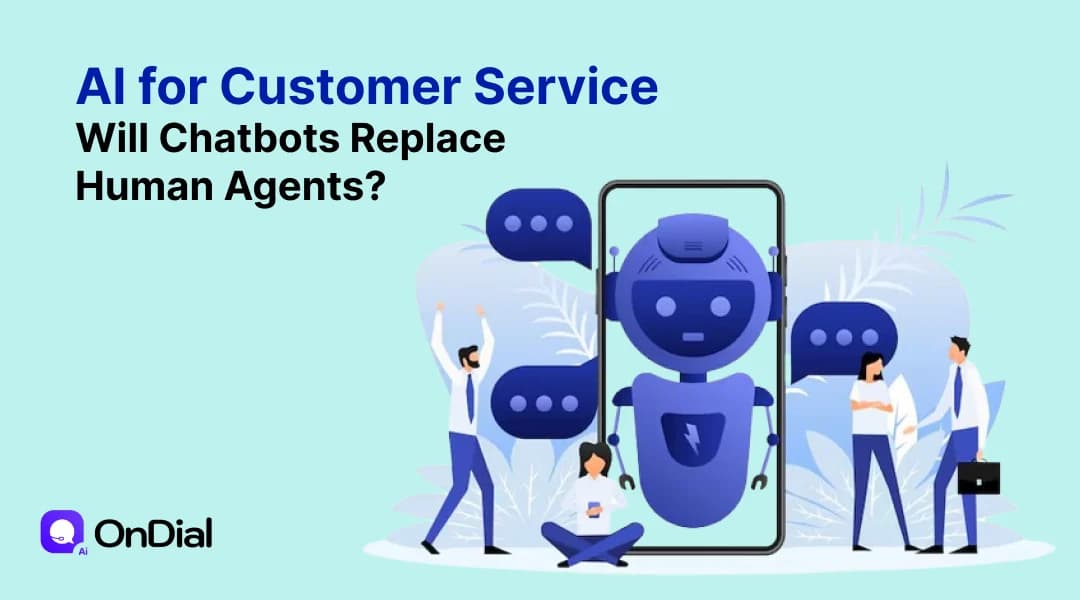
Explore how AI is transforming customer service and whether chatbots can truly replace human agents without losing personalization and empathy.
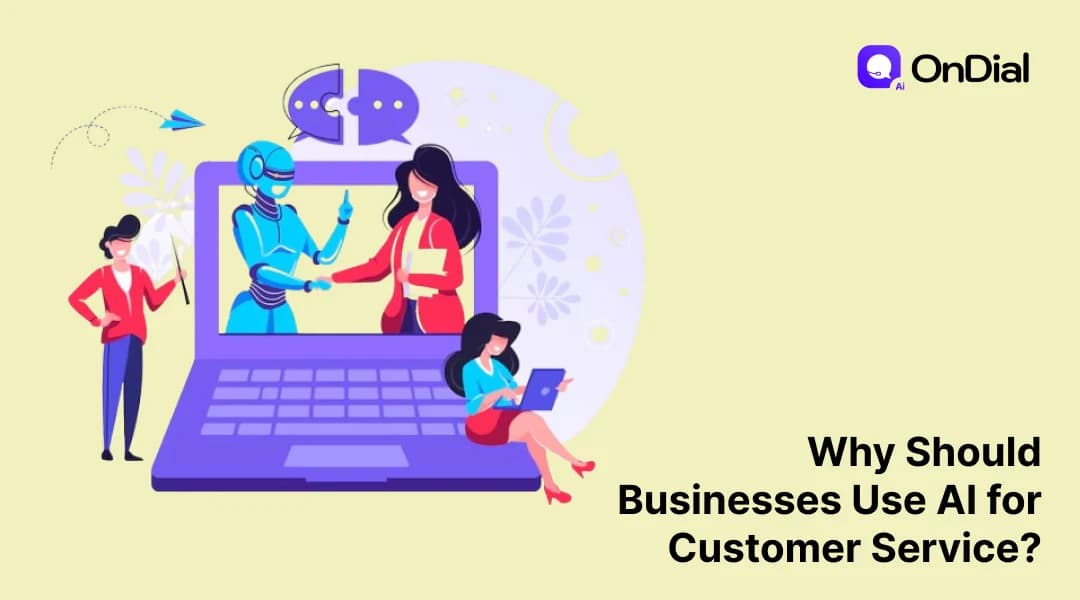
Discover how AI improves customer service with faster responses, personalized support, and cost efficiency for businesses of all sizes. | OnDial
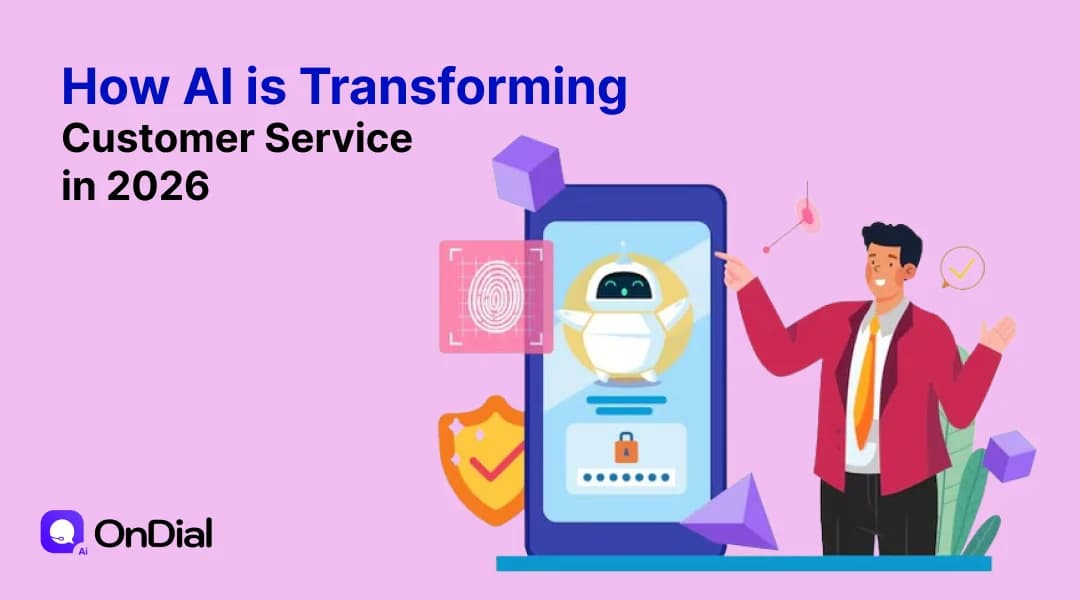
Discover how AI is reshaping customer service in 2026 with smarter interactions, faster support, and improved customer satisfaction.
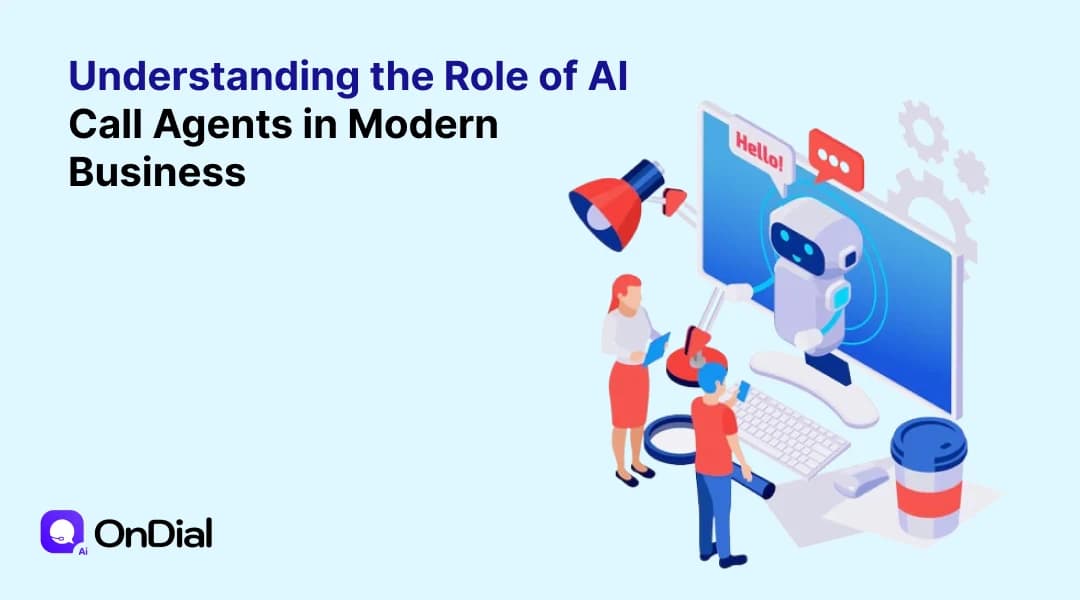
Discover how AI call agents are transforming modern business communication—enhancing efficiency, customer satisfaction, and round-the-clock support.
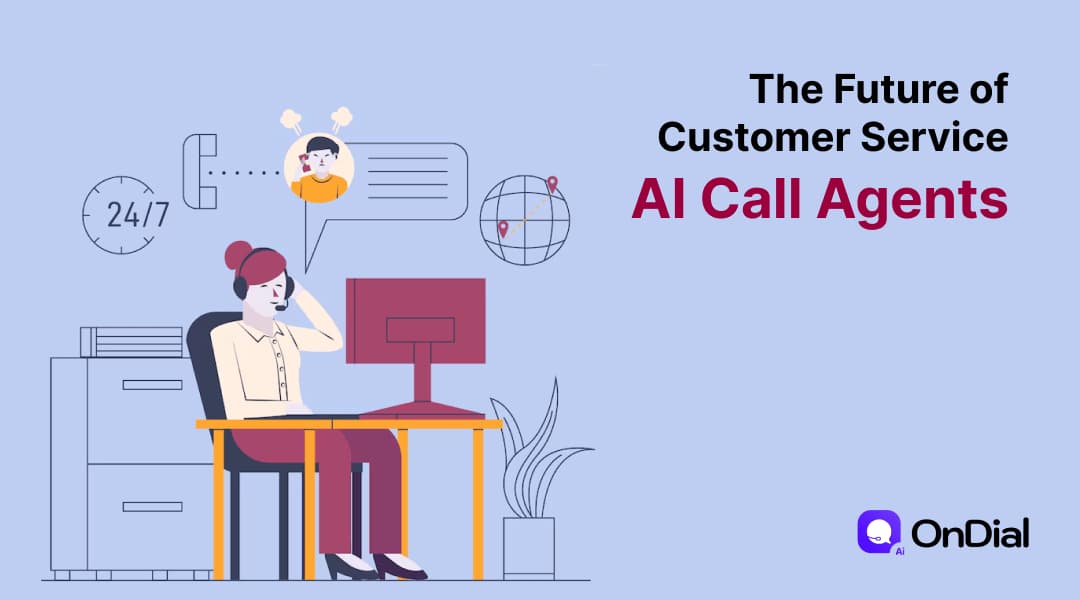
Explore how AI call agents are transforming customer service with smarter, faster, and more personalized interactions for businesses of all sizes.
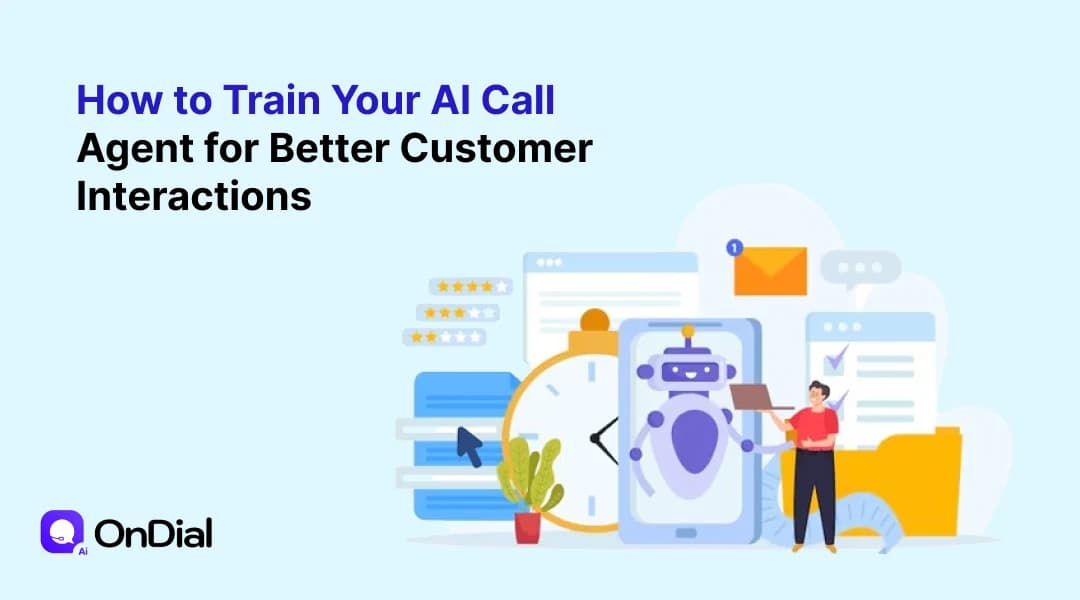
Discover effective strategies to train your AI call agent for natural, efficient, and human-like customer conversations that boost satisfaction.
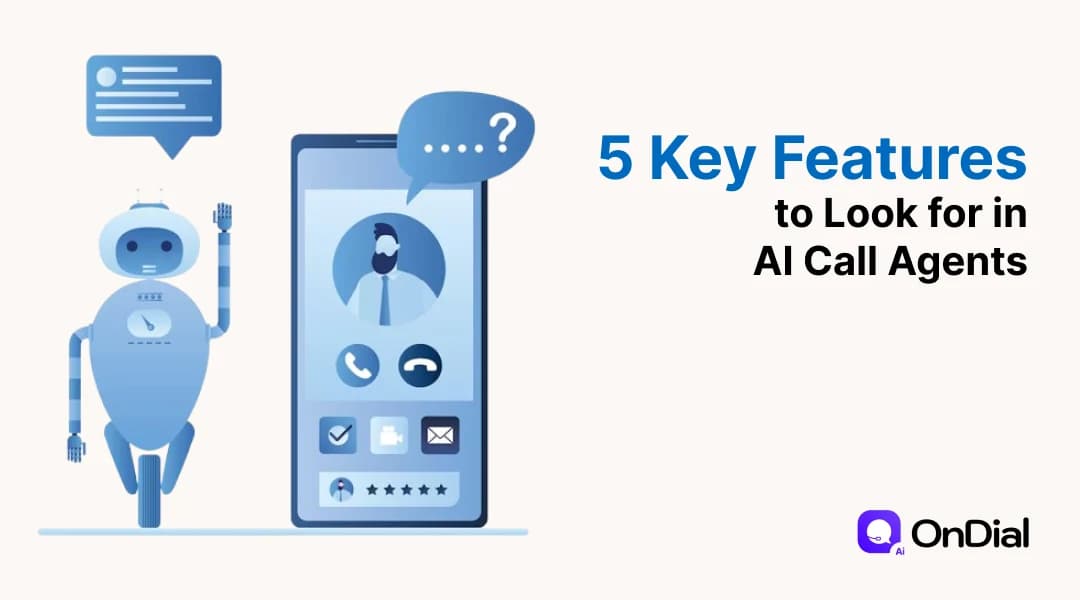
Discover 5 must-have features in AI call agents that boost customer experience, automate support, and help your business scale smarter. | OnDial
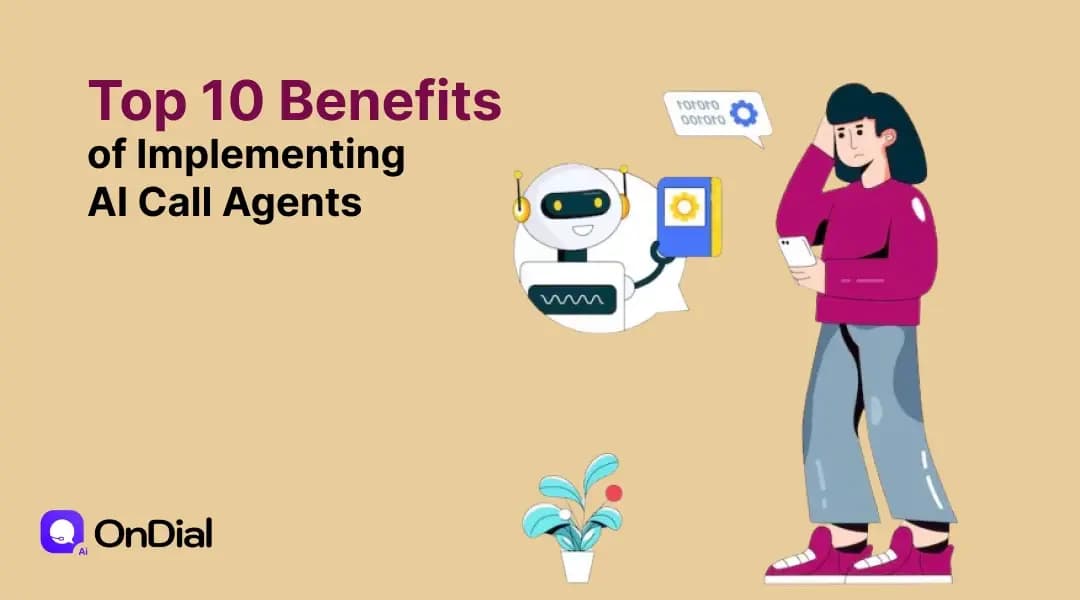
Explore the top 10 benefits of AI call agents—boost efficiency, cut costs, enhance customer experience, and scale your business smarter. | OnDial
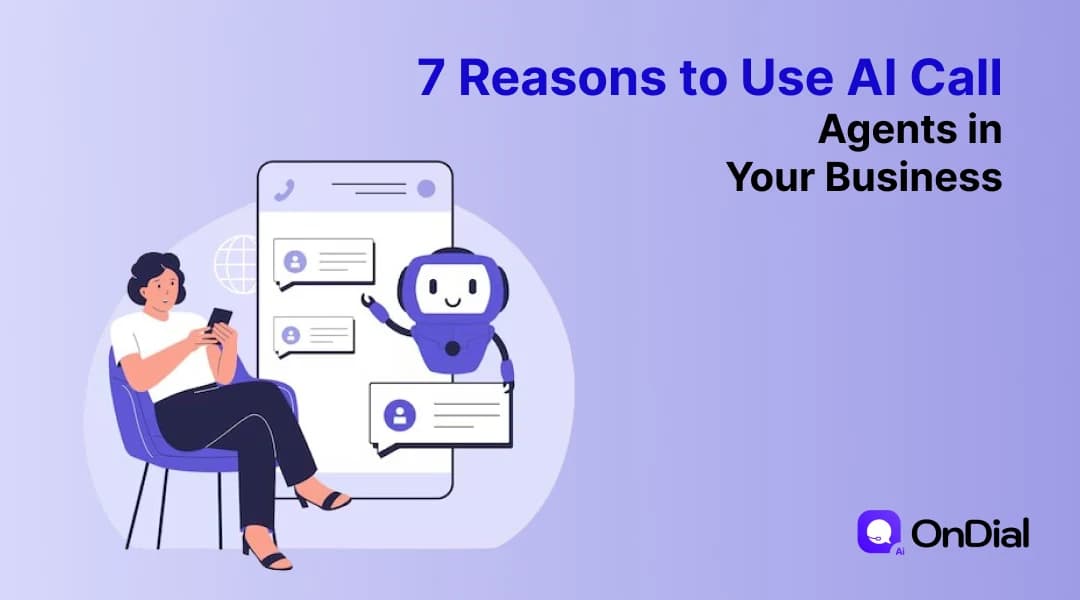
Discover 7 compelling reasons why AI call agents boost efficiency, improve customer experience, and scale your business smarter than ever. | OnDial
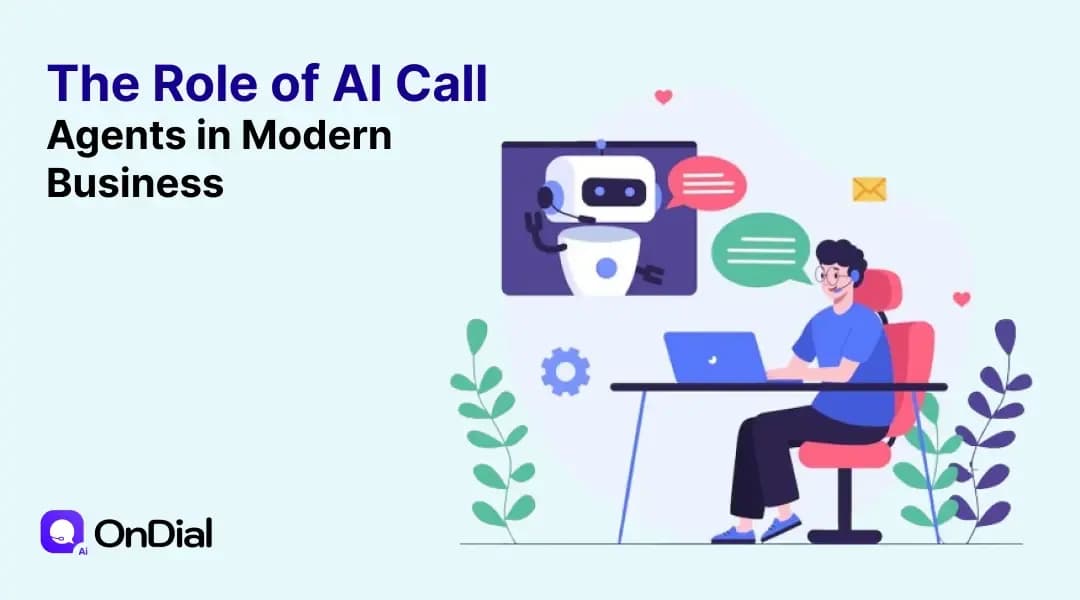
Discover how AI call agents transform customer support, boost efficiency, and reduce costs in modern businesses across industries. | OnDial
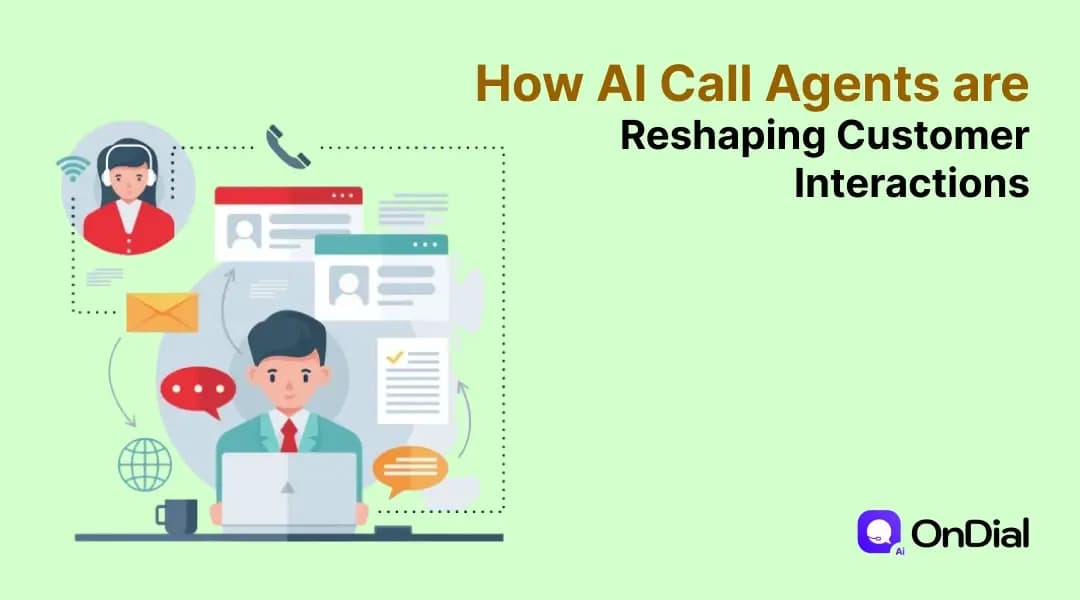
Discover how AI call agents are transforming customer interactions with faster responses, personalized service, and 24/7 support. | OnDial
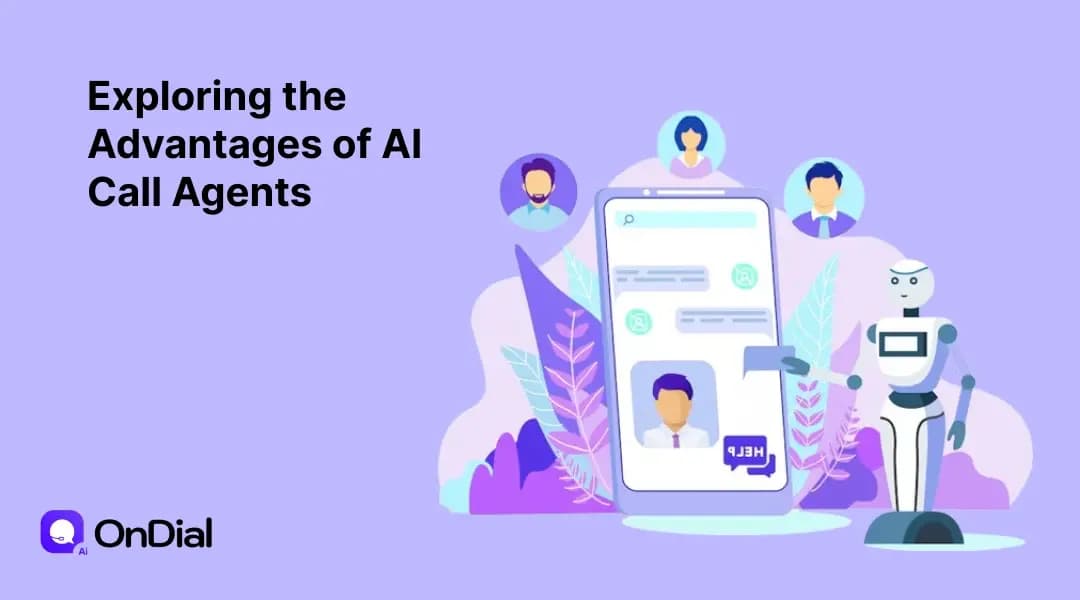
Discover how AI call agents improve customer service, reduce costs, and boost efficiency. Learn why businesses are adopting AI for smarter communication.
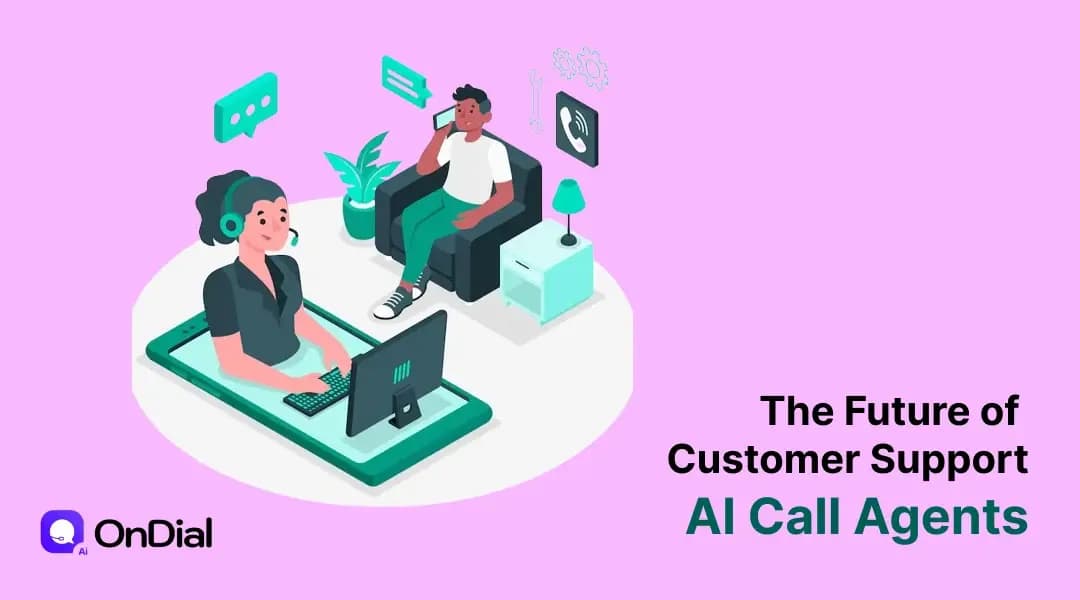
Discover how AI call agents are reshaping customer support with faster response times, cost savings, and smarter customer experiences. | OnDial
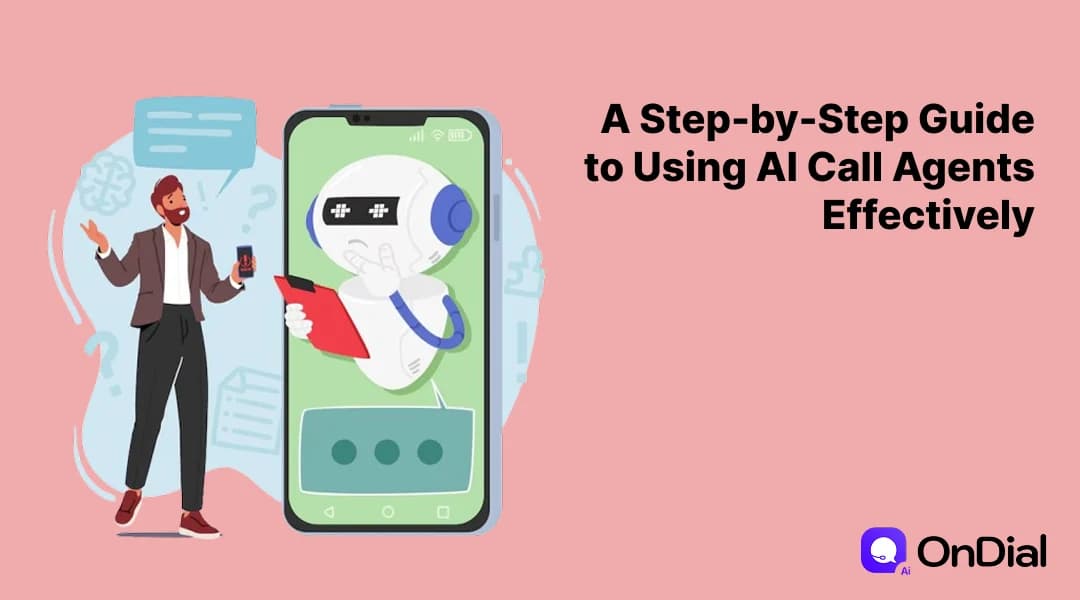
Confused about AI call agents? Learn how to set up, customize, and scale them effectively for customer support and sales automation. | OnDial
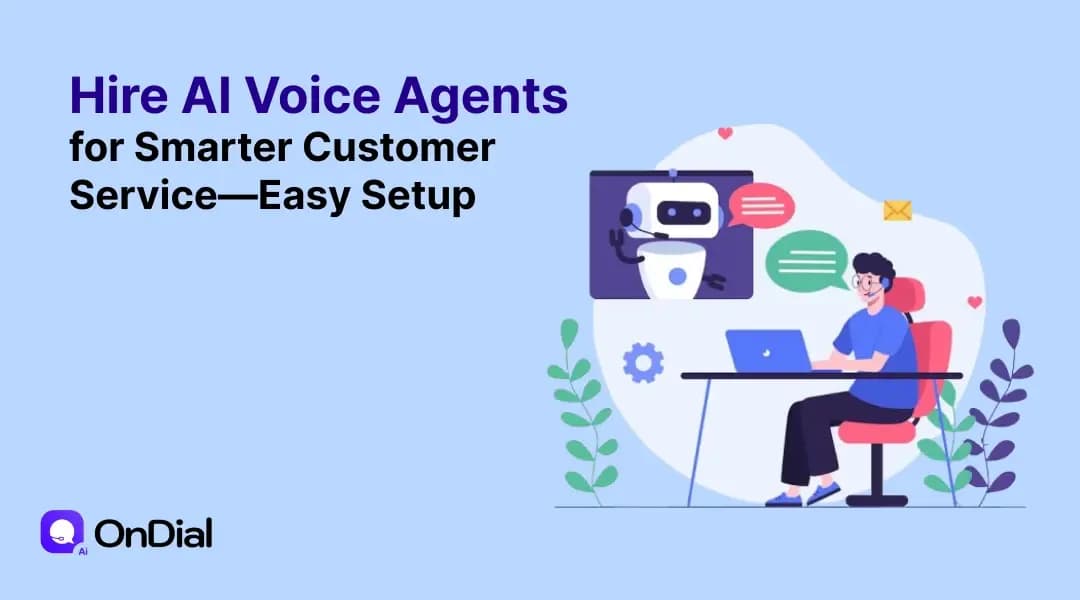
Hiring AI voice agents is easier than you think. Learn benefits, setup steps, and how businesses use AI for smarter customer service. | OnDial

Cut support costs and offer 24/7 customer help with your own AI voice agent. Learn how AI voice assistants save time and boost efficiency. | OnDial
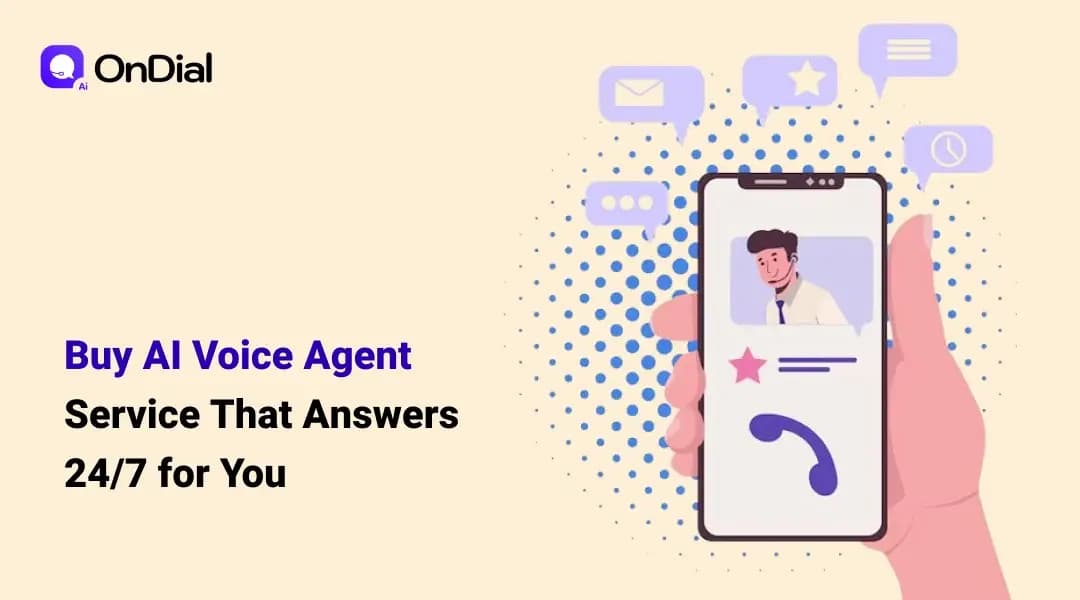
Need 24/7 call handling? Discover how an AI voice agent service boosts efficiency, never misses calls, and scales your business effortlessly. | OnDial
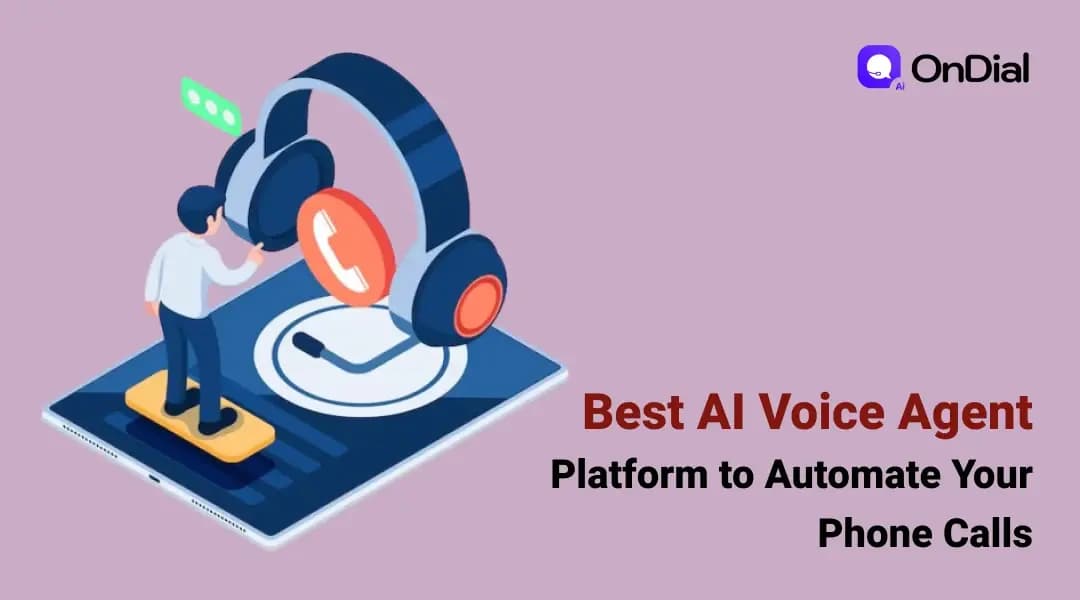
Find out why OnDial is the best AI voice agent platform to automate phone calls, save costs, and deliver 24/7 personalized, human-like customer experiences.
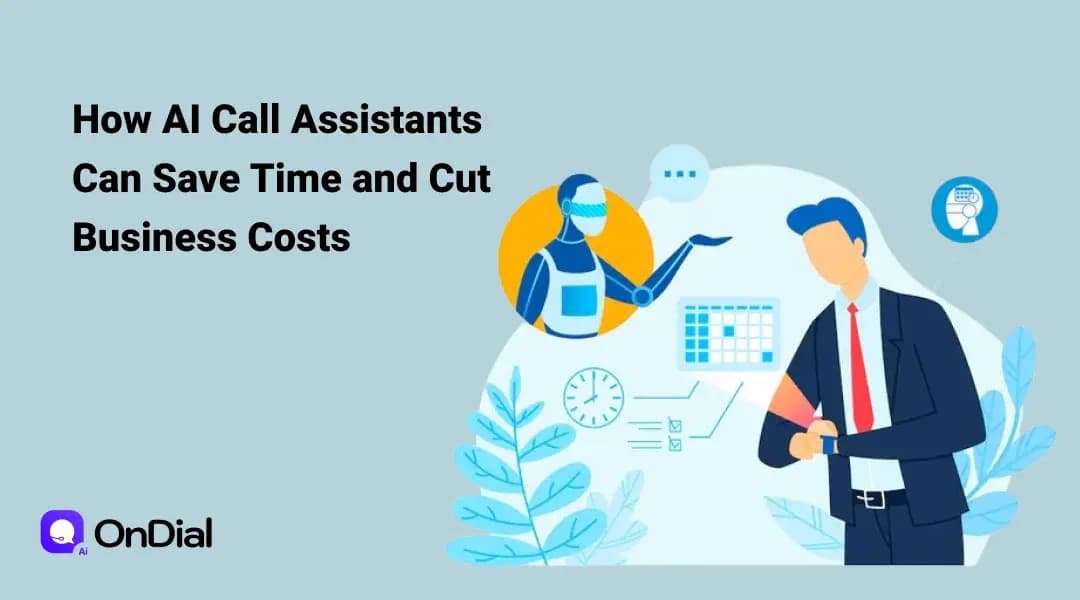
Discover how AI call assistants save time, reduce operational costs, and streamline business calls for improved efficiency and customer service. | OnDial
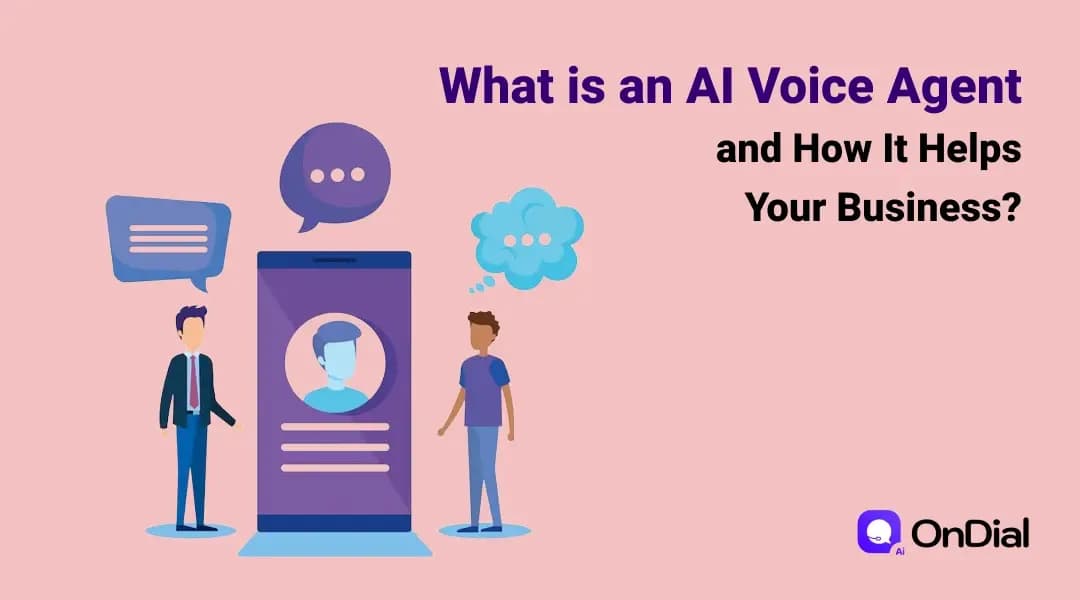
Discover what an AI voice agent is, how it works, and how it can cut costs, boost customer support, and grow your business effortlessly. | OnDial
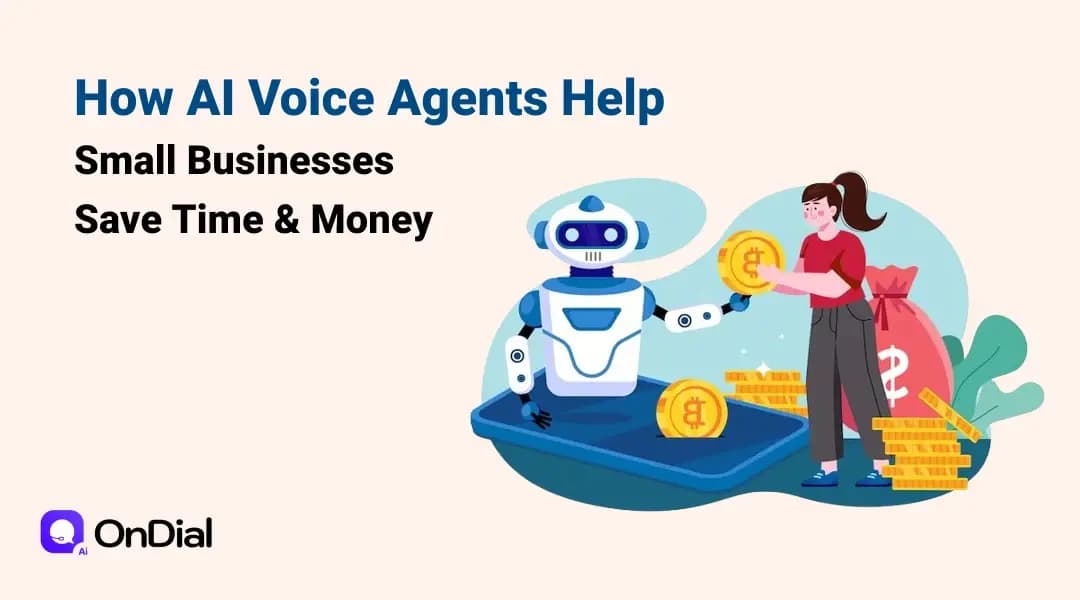
Discover how AI voice agents streamline calls, cut costs, and boost efficiency for small businesses—saving time and improving customer experience.
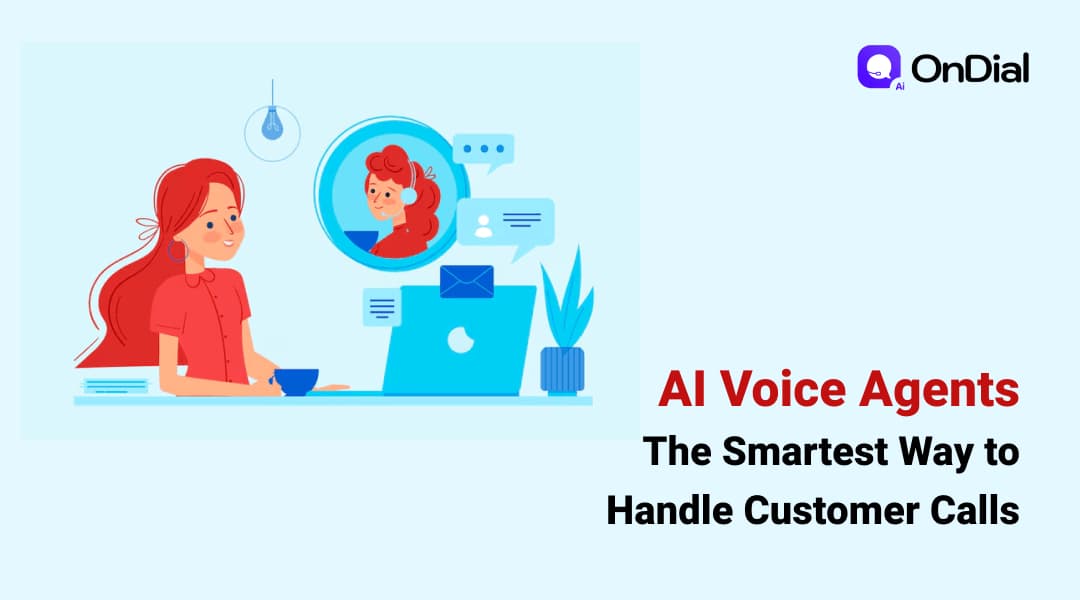
AI Voice Agents handle calls faster, cut costs, and boost customer satisfaction — discover why businesses trust them to scale support. | OnDial
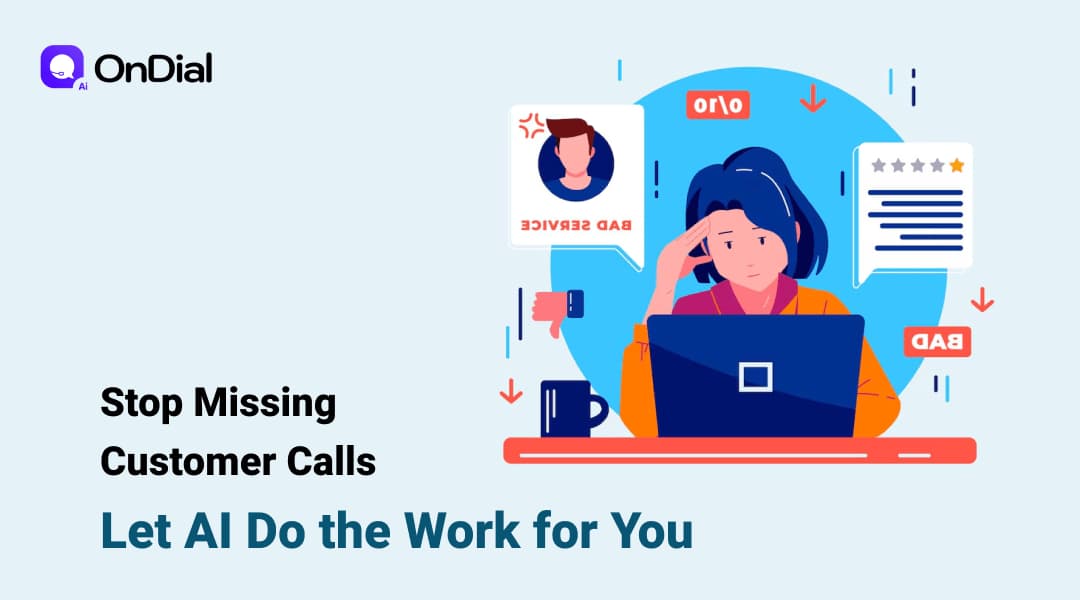
Stop missing customer calls — discover how AI call assistants answer 24/7, capture leads, and turn missed calls into business growth | OnDial
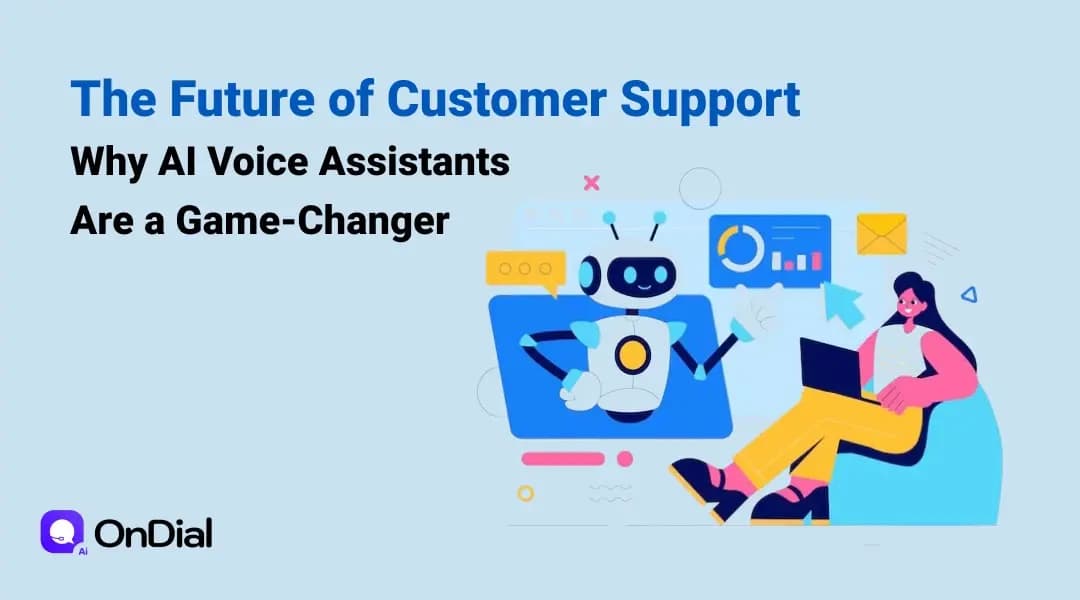
AI voice assistants are changing customer support forever. But are they really ready to replace human agentsor make them better? | OnDial
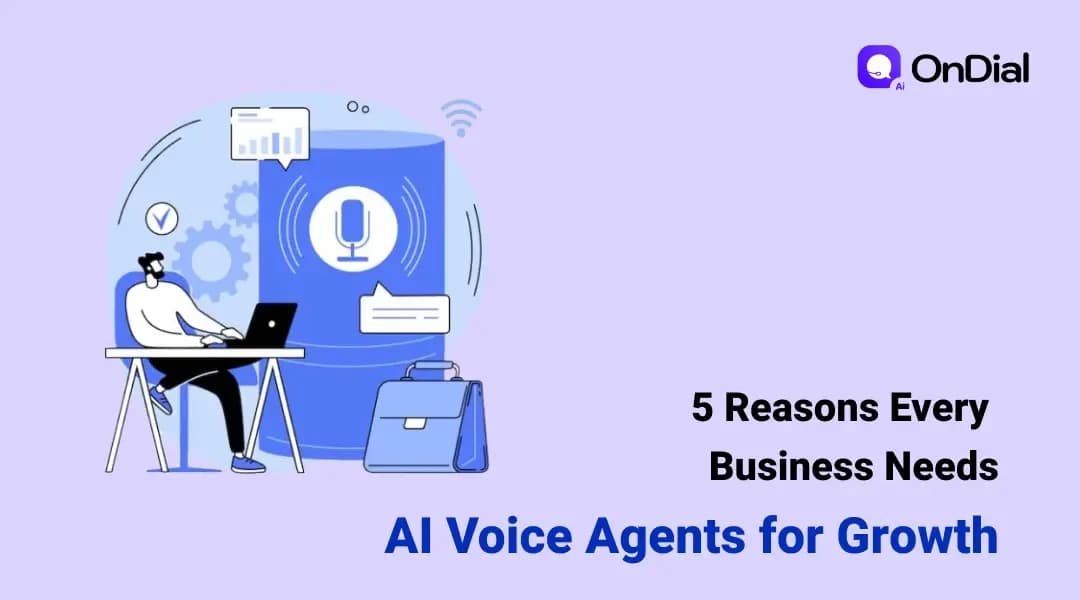
Discover 5 powerful reasons why AI voice agents help businesses grow faster with 24/7 support, better CX, and higher sales conversions. | OnDial AI
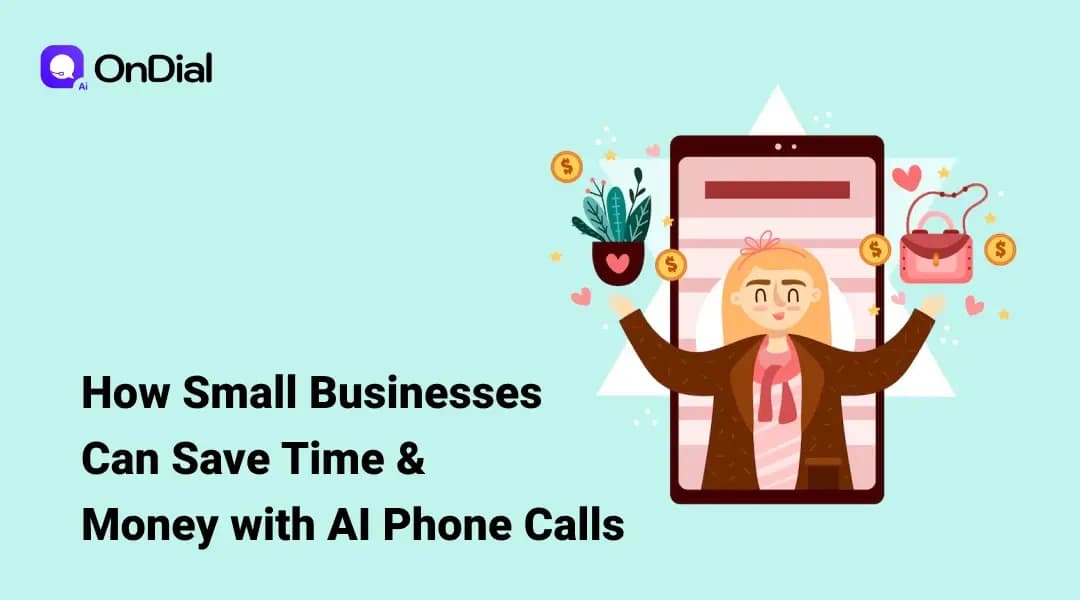
Discover how AI phone calls help small businesses cut costs, save time, boost customer service, and stay ahead with 24/7 automation. | KriraAI
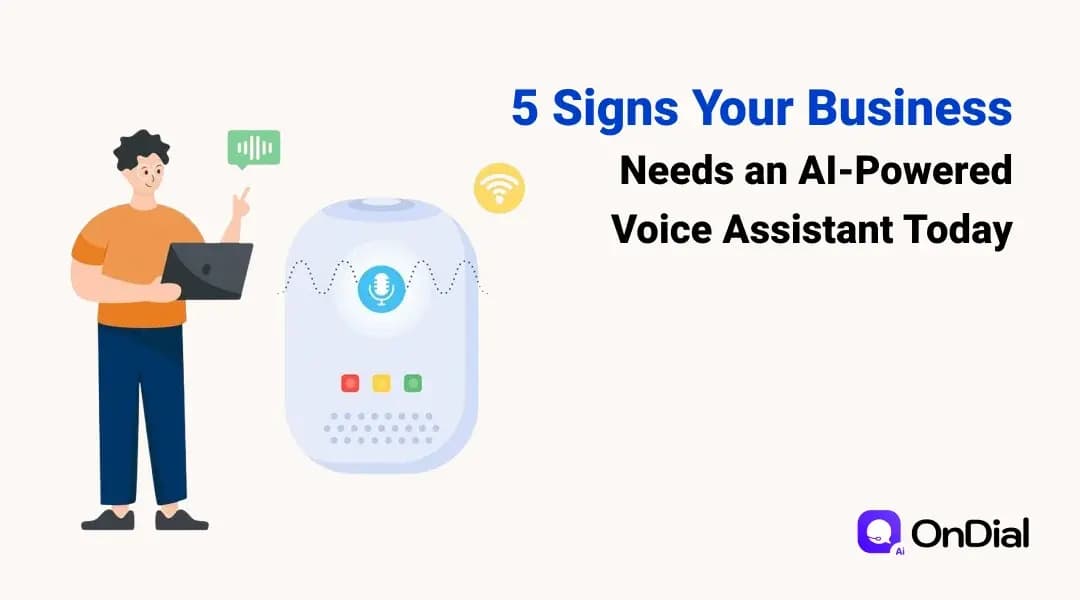
Discover 5 clear signs your business needs an AI-powered voice assistant today to cut costs, scale support, and improve customer experience.

Learn how to handle 100+ customer calls daily without hiring staff using automation, AI tools, and smart call management solutions to cut costs. | OnDial

Discover how OnDial's AI technology can transform your customer service and boost your business growth.